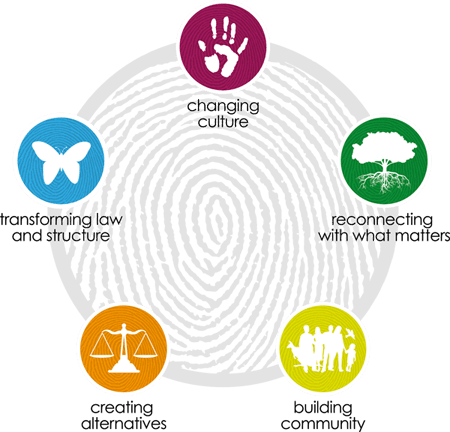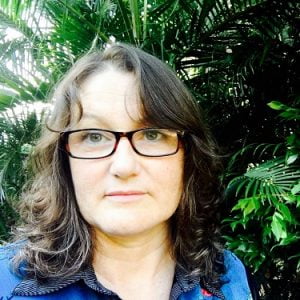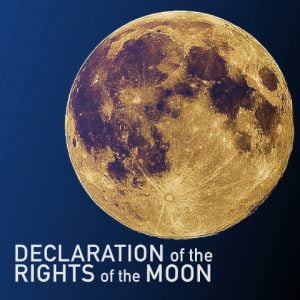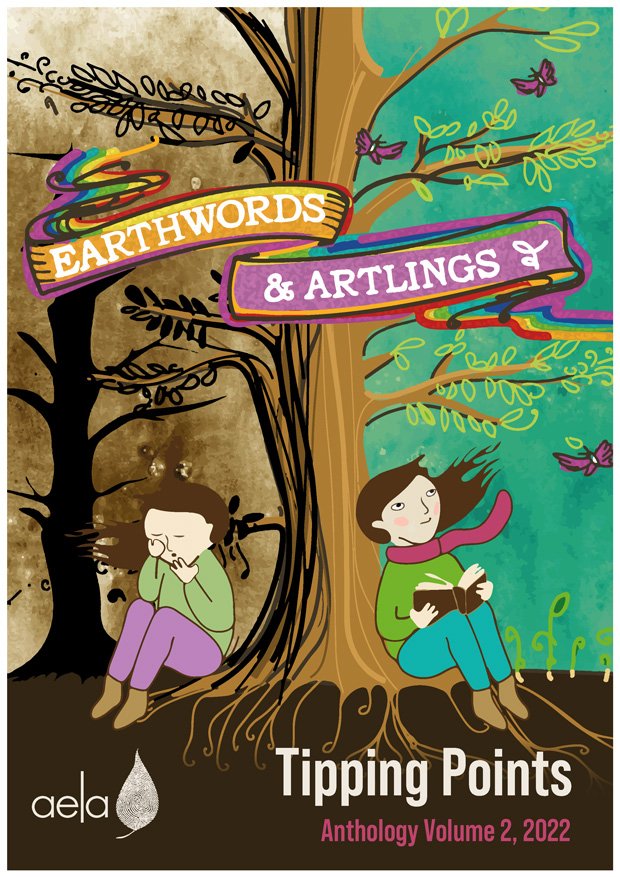Plenary speakers
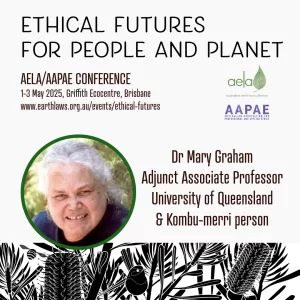
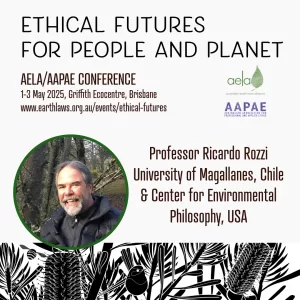
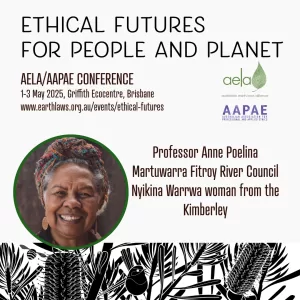
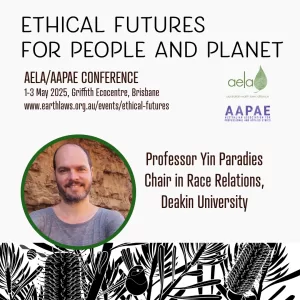
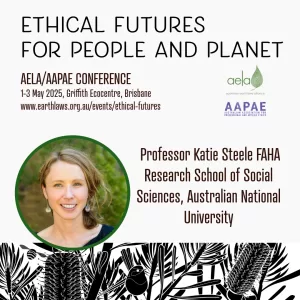
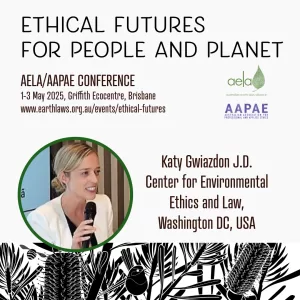
Speakers
Pablo Aranda Valenzuela
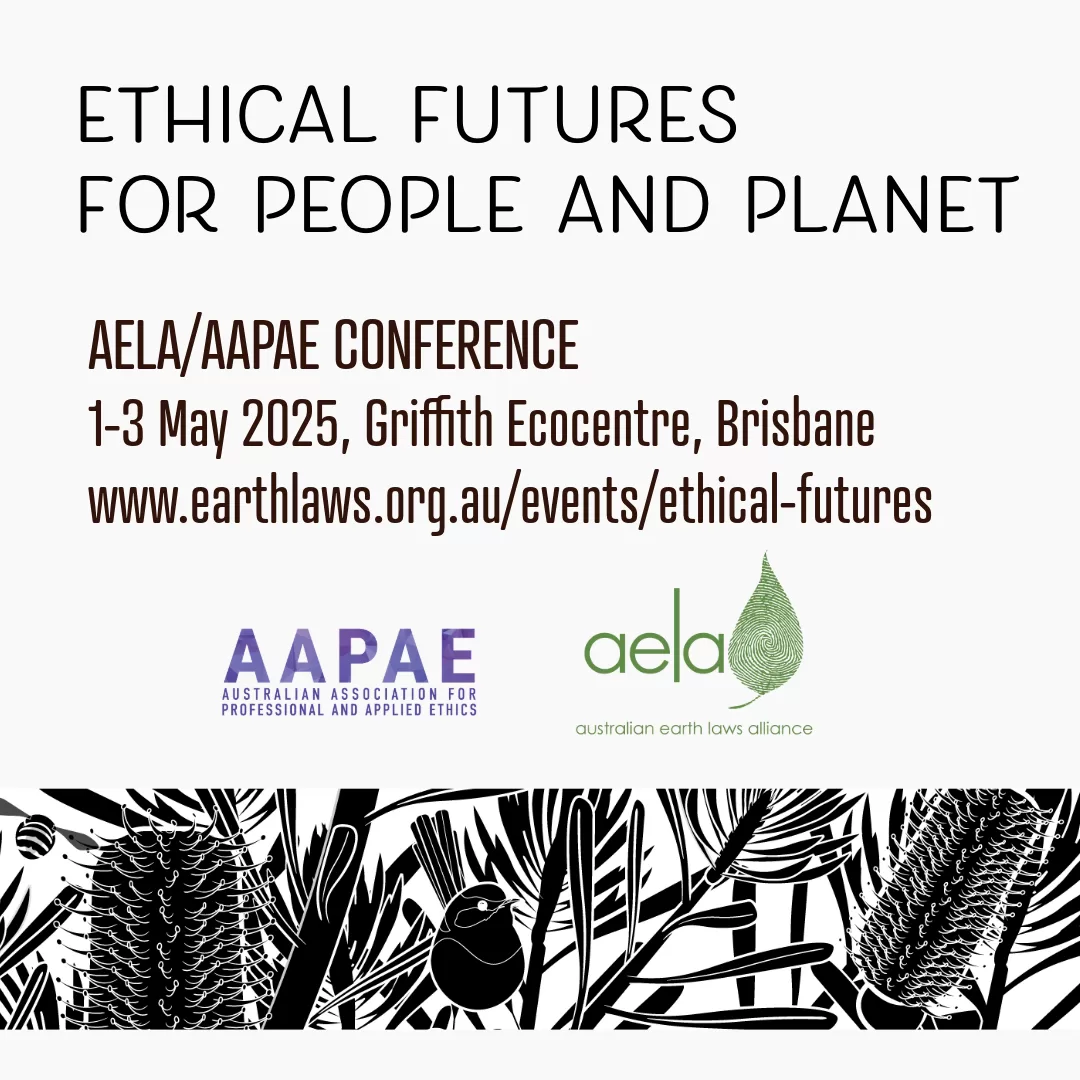
PRESENTATION TITLE - Ethical Crossroads: Agribusiness, Community Rights, and Water Governance in Petorca, Chile
ABSTRACT - This proposal explores ethical aspects of water governance transition in Petorca, Chile, in the context of climate change, resource scarcity, and social conflicts. It analyzes the shift from a privatized water system to a more democratic framework, highlighting the roles of agribusinesses, local communities, and government agencies in shaping water management. Through ethnographic research, the study examines how various water stakeholders navigate daily ethical challenges related to water access and usage. It focuses on the conflict between large-scale avocado producers and local communities, raising essential questions about equitable access to water as a vital resource. The research aims to contribute to developing a more ethical water governance that balances economic interests with water justice and environmental sustainability. By providing insights into this case of reverse privatization, the study offers valuable perspectives for policymakers and water actors worldwide facing similar conflicts over water access amid climate change and competing demands.
BIO - Pablo Aranda Valenzuela is a lawyer from the University of Chile and a master’s in integrated water management (IWM) from Griffith University and The University of Queensland. He currently works as a lecturer in Environmental Law and Regulation at the University of Chile's School of Engineering and as a Principal Senior Researcher at The University of Queensland's Sustainable Infrastructure Research Hub. He also provides support to the Chilean Newenko non-profit on water governance topics. Furthermore, he is a PhD candidate at The University of Queensland, researching water governance, water justice, and integrated water management and their impact on rural communities.
Dr Tracey Benson

PRESENTATION TITLE - Co-designing models of governance for community organisations
Co-presenter - Nola Turner-Jensen
ABSTRACT - In this paper we will discuss how a place-based localised governance approach older than any other on the planet, using local communities as the learning context can provide needed educational reforms but also sow the seeds of sustainable behaviours for future generations.
BIO - PHD Candidate Doctorate of Philosophy (Indigenous)Diversity Excellence Research Fellow at Uni of Melbourne - Learning to live by the 3 Teachings of my Ancestors - Modestly, Mutually and Fearlessly.
Dr Tracey Benson has over 20 years experience across education, government and community based environmental programs. Her work has primarily focused on emerging technologies and digital transformation with the goal of empowering communities to tell stories with digital media. Tracey is passionate about more-than-human design and bridging the links between western ways of thinking with experiential and interconnected knowledge.
Dr Iris Marie Bergmann
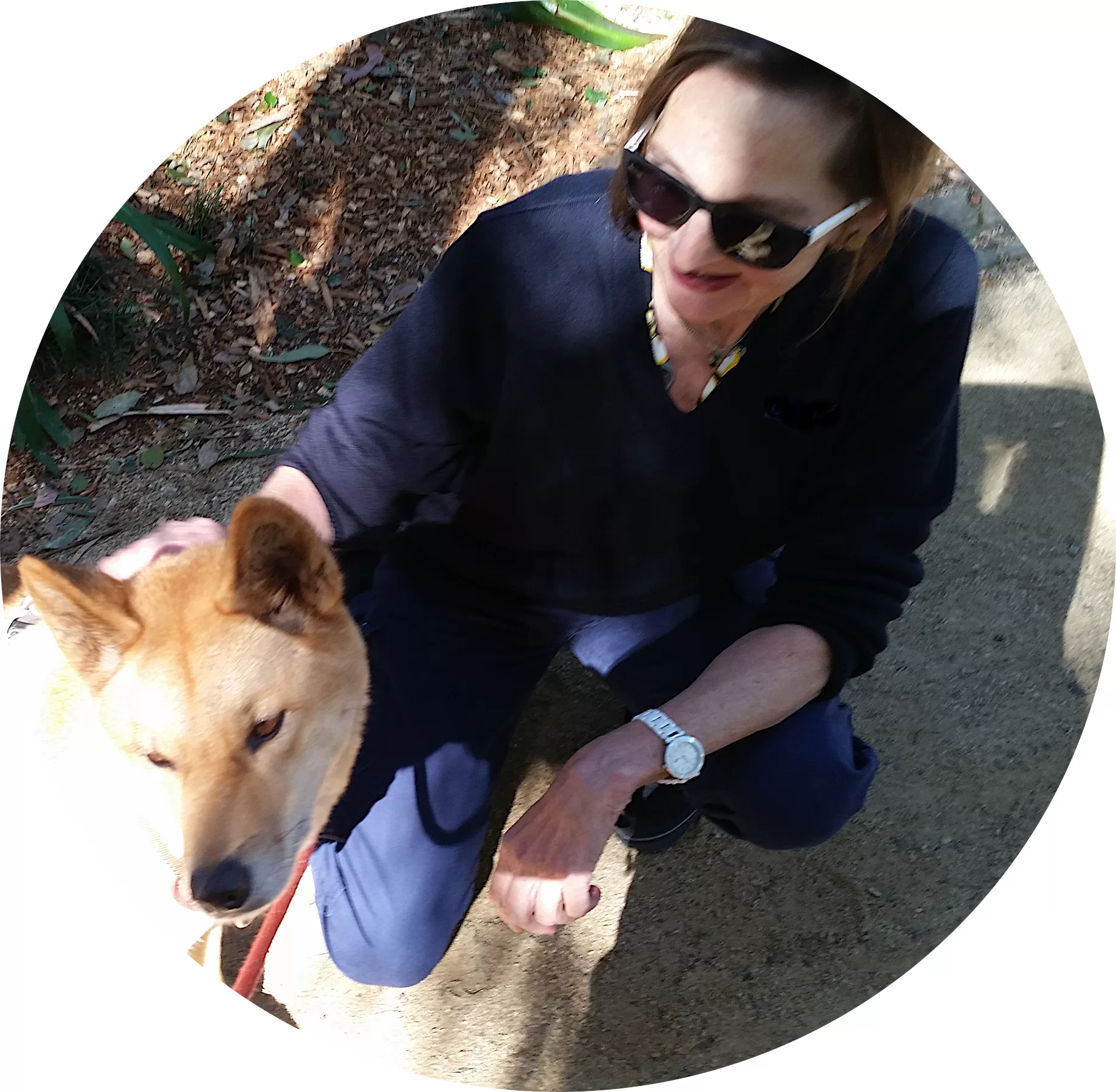
PRESENTATION TITLE - The Potential of Intuitive Interspecies Communication and its Ethical Implications for the Rights of Nature Discourse
Co-authors - four anonymous animal communicators, and eight domestic and wild nonhuman animals
ABSTRACT - Interest in intuitive interspecies communication (IIC) is growing within society. IIC has also emerged as a topic of interest within the academy. A central argument at the practice level is that IIC can reconnect humans with animals and nature, a precondition to embrace an earth-centred ethic. At the academic level, a sense of urgency drives engagement with IIC as it can assist with addressing epistemological, ontological and cognitive injustices against animals and nature. This paper supports the argument that IIC has the potential to overcome the limitations of the binary and purely rational worldview, to co-create a multispecies ethico-political sphere, to facilitate animal representation and to thus advance the Rights of Nature discourse. Examples of the authors’ communication with animals, often with unexpected insights, are presented. This paper is framed within the intersection of ecocentric and animal ethics, indigenous studies, critical animal studies, and the notion of interspecies sustainability.
BIO - Iris holds a PhD in Environmental Education and Cognition (Southern Cross University), and a PhD in Sustainability Studies (The University of Sydney) where she developed a notion of Interspecies Sustainability. Her focus has been on animal studies since 2009. She is currently undertaking training in Intuitive Interspecies Communication.
Judith Benz-Schwarzburg

PRESENTATION TITLE - What’s Wrong with Orangutan Kickboxing Shows? Scrutinizing Wildlife Tourism as a Form of Visual Consumption
Co-Presenter - A-Prof Georgette Leah Burns
ABSTRACT - Using non-human animals in tourism contexts is ethically challenging. While non-consumptive wildlife tourism does not result in animal death, it might still impair animal welfare or involve other kinds of wrongdoing to animals. In this paper we are concerned that captive encounters can negatively influence how we perceive animals and how we understand the human-animal relationship. We argue that taking an approach to wildlife tourism that deliberately aims beyond an anthropocentric stance encourages us to question the role of animals as entertainment objects and explore what a broader notion of wrongdoing can contribute to a refined definition of wildlife tourism. Our discussion makes use of two crucial dimensions of the positioning of animals by Stewart and Cole (2009): visibility/invisibility and objectification/subjectivity. We reveal and discuss interlinks between the two dimensions and tackle ethical pitfalls. The example of an orangutan kickboxing show elucidates how the described concerns manifest in animal-tourist interactions.
BIO - Judith Benz-Schwarzburg, an Animal Ethicist at the Vienna Messerli Research Institute, works at the intersection of animal cognition and animal ethics. She investigates whether non-human animals share complex socio-cognitive abilities, like culture, language, theory of mind, or morality with humans. Judith is author of Cognitive Kin, Moral Strangers? (2020).
Susan Zela Bissett
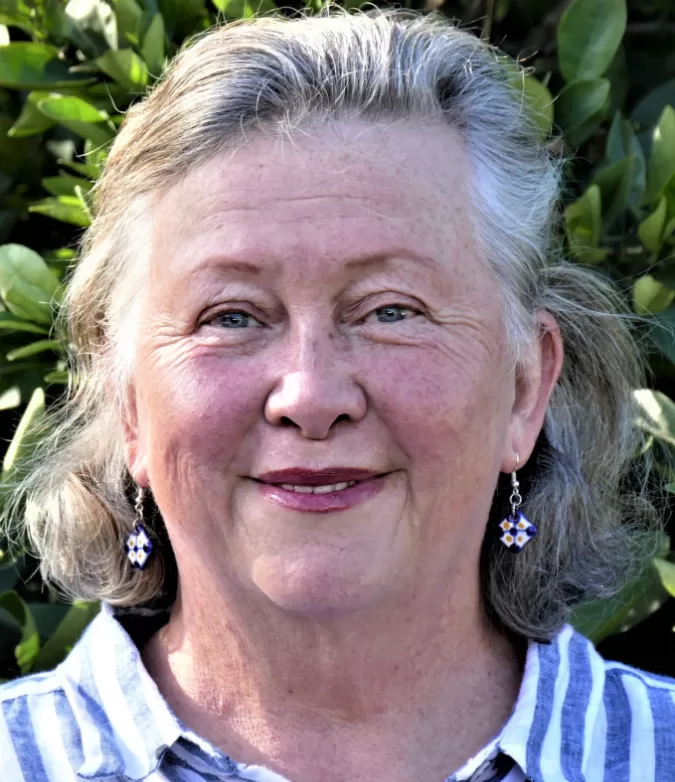
PRESENTATION TITLE - Can One Speak for Many?
ABSTRACT - This paper examines the activism of John Sinclair (1939-2019) in connection with K’gari. It examines the changes in his philosophy as he took a stand to protect K’gari from damage from sand-mining and logging. Sinclair was provoked to find an authentic answer to the question Can One Speak for Many? by Maryborough Mining Warden, Mr B J Butler in 1971. John Sinclair opposed granting sand mining licenses on K’gari on the grounds that to destroy the island’s ecology would not be in the public interest. The Mining Warden granted the licenses, arguing that Sinclair represented only a narrow section of the public. In doing so, he aroused Sinclair’s determination to show that he actually did represent the greater interest. This paper traces how Sinclair’s stance was vindicated and his philosophy approached a form of Earth Jurisprudence elegantly aligned with the three key lores/laws of K’gari’s custodians, the Butchulla People.
BIO - Susan Zela Bissett (Zela) is an artist, environmental educator, author and advocate for sustainable futures. Zela was born on Butchulla Country and has experience in education, academic and popular writing, arts practice and consultancy. She completed a Master of Environmental Education from Griffith University (2010) and was subsequently seconded to the Queensland Education Department as a sustainability consultant from 2010 to the end of 2012, returning to teaching in 2013. She retired from teaching in 2019 and began a PhD with Sunshine Coast University researching a biography of Dr John Sinclair, AO, the “Fraser Island Bulldog”. She currently chairs the organization he founded (FIDO: the watchdog of K’gari) and works with diverse groups. including Butchulla Land and Sea Rangers and QPWS, connected with preserving the natural integrity of K’gari.
Dr Jacqueline Boaks
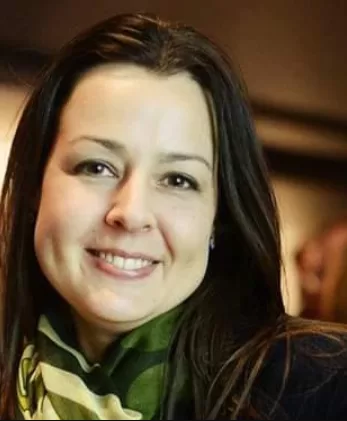
PRESENTATION TITLE - Moral Agents and Moral Patients: What Can AI Tell Us About the Moral Status of Business and the Environment?
ABSTRACT - Classically, only humans are both moral patients and moral agents. Our interests count, morally speaking and our actions attract moral praise or moral blame.
Traditional ethical thinking also has well established conceptual space for non-moral agents who are nonetheless moral patients. That is, entities whose interests count but whose actions are not subject to moral evaluation.
Classically, non-human animals are considered such entities. On many models so too are natural environments and on some models the planet Earth as a whole is such an entity.
Artificial intelligence raises the question of the opposing kind of asymmetry – that is, of artificial agents whose actions may be morally evaluated but who may not themselves have moral standing.
This paper will explore ways that this kind of asymmetry between moral agency and moral patience raises useful and under explored ways of thinking about the moral status of business and ESG efforts.
BIO - Dr Jacqueline Boaks is the Curriculum Lead with the Curtin Centre for Applied Ethics, where she works in curriculum development in applied ethics in focal areas of the Ethics of AI, Sustainability, and Climate Ethics.
She previously taught ethics, leadership, and critical thinking to students at Bachelor of Commerce, MBA, and Executive Education levels and was the discipline leader for the School of Management and Marketing’s Social Leadership and Ethics specialisation.
She is the Vice President of the Australian Association of Professional and Applied Ethics, editor of the journal Research into Ethical Issues in Organizations (Emerald), the founder of the WA Ethics Outside Philosophy group, the co-editor of Leadership and Ethics (Bloomsbury) and a member of the editorial board of the journal Philosophy of Management (Springer). She has published widely on democracy, ethics, and leadership.
Gabrielle Bond

PRESENTATION TITLE - "Finding The Money" documentary screening - Thursday evening @ 6pm (refer to Conference Program for details)
Co-presenter - Steven Hail, Modern Money Lab
ABOUT THE FILM - This film addresses the vital role of currency issuing federal governments in building an ethical future. It will empower anyone who has watched it to effectively counter the "pay for" myth - that money or savings have to be found first before climate and inequality solutions can be acted upon.
FINDING THE MONEY follows former chief economist to Senator Bernie Sanders, Professor Stephanie Kelton, on a journey to unveil a deeper story about money, injecting new hope and empowering countries around the world to tackle the biggest challenges of the 21st century: from climate change to inequality.
"In a world of epic, overlapping crises, Stephanie Kelton is an indispensable source of moral clarity … the truths that she teaches about money, debt, and deficits give us the tools we desperately need to build a safe future for all."
Naomi Klein
"A masterpiece! By far the most inspiring economics film I have ever seen. This film is a gift to humanity. Everyone should watch it." — Jason Hickel, author of Less Is More, Professor ICTA-UAB
Dr Keely Boom

PRESENTATION TITLE - Non-Commercial Traditional Indigenous Medicine in Australia
ABSTRACT - This presentation provides an analysis of the regulation and status of traditional Indigenous medicine under Australian law, with a comparative analysis as to the status of 'trade secrets' under Australian law. The presentation considers the importance of maintaining secrecy for some Indigenous Australians around knowledge of plants and medicine and the provision of small scale community-based traditional Indigenous medicine; in contrast to laboratory testing and commercialisation of traditional knowledge.
BIO - Dr Keely Boom is an Awabakal woman and lawyer on the South Coast of NSW. Dr Boom is Executive Officer of the Climate Justice Programme. She teaches Climate Law at Australian National University; and teaches Indigenous Peoples and Legal Systems at the University of Wollongong. Dr Boom is an Industry/Professional Fellow at the Institute for Sustainable Futures at the University of Technology Sydney.
Dr Larelle Bossi
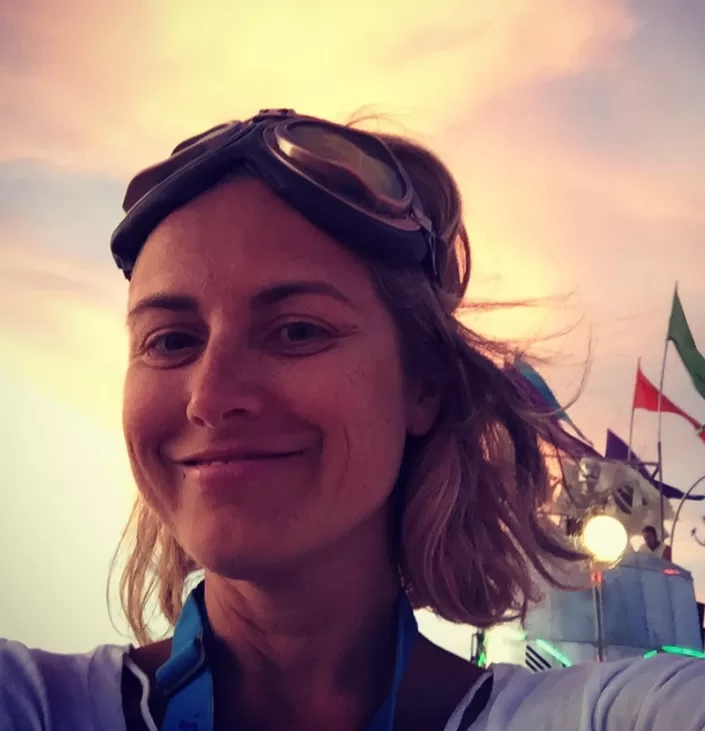
PRESENTATION TITLE - How Human-Nature Connections are needed to create Nature Positive Policies
ABSTRACT - Australia hosted the first Global Nature Positive Summit in 2024 and I have since been thinking about how this paradigm ought to be more than positive messaging and metrics to guide urban outcomes. Within existing frameworks, nature-positive practices unsurprisingly prioritize economic viability alongside ecological benefits, potentially leading to conflicts between conservation goals and profit motives. I would expect that our current ecological and climate crises require a little more than a cost-benefit analysis – even if inclusive of aims to enhance biodiversity and environmental resilience. I argue that the nature positive concept requires of us a cultural transformation. Whilst I agree that an eco-centric ethics has proposed anon-contingent basis for protecting the natural world, it also raises concerns around anti-humanist moralities. I will demonstrate how overcoming our disconnection from nature through a deeper understanding of place offers a solution toward meaningful nature positive outcomes founded upon biocultural ethics.
BIO - Larelle Bossi is currently a Research Fellow at Griffith University’s Law Futures Centre. Her work is interdisciplinary, integrating biocultural ethics with eco-feminism and Indigenous kinship worldviews. She focuses on contemporary issues such as ocean ethics, climate change, building ocean cultures, resource and environmental management, ecofeminism and decolonisation. Her research emphasizes developing ethical cultures, leadership, and investment in these areas, aiming to address global challenges in sustainability and environmental stewardship.
Dr Hugh Breakey
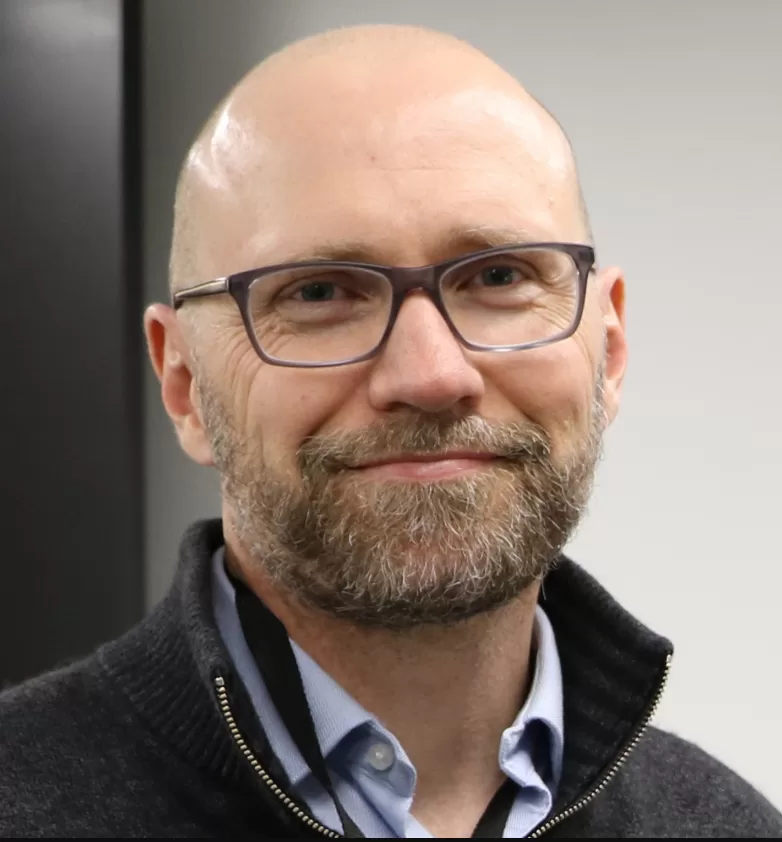
PRESENTATION TITLE - Flesh and blood legitimacy: Are human beings replaceable parts of legitimate decision-making systems?
Co-author - Professor Paul Formosa
ABSTRACT - Why might people be more accepting of a flawed human decision-maker than a more reliable Artificial Intelligence (AI)? Legitimacy is at present built out of humans and their qualities, and out of institutions and systems built and staffed by humans. If we take out the human, how much legitimacy will be left? Is it possible that AI will have features that, while not exactly capturing existing legitimacy qualities, could serve as functional equivalents? This paper looks at the way that normal institutions accrue legitimacy, and assesses the extent to which this relies on flesh-and-blood people. It can help us predict what types of processes, decisions and institutions ordinary people might accept when replaced by AI decision-making, in the context of government, public service or professional decision-making. And it can help us design institutions and systems that leverage the different capabilities and qualities that humans and AI bring to bear.
BIO - Dr Hugh Breakey is Deputy Director and Principal Research Fellow in moral philosophy at Griffith University’s Institute for Ethics, Governance and Law. Hugh has extensive experience in the application of ethical, legal, and political philosophy to many challenging practical fields, including institutional governance, integrity systems and professional ethics.
Dr Daniel Brennan
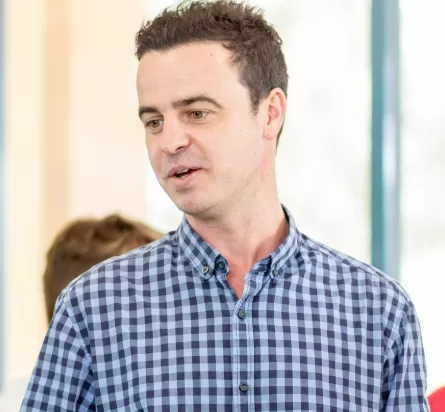
PRESENTATION TITLE - Relational Ethics and Pluralistic Knowledge: Indigenous Philosophies in SDG-Oriented Curriculum Design
ABSTRACT - This paper explores the creation of a curriculum designed to advance the Sustainable Development Goals (SDGs) through interdisciplinary collaboration, drawing upon Indigenous philosophies, particularly the works of Aunty Mary Graham and Tony Birch. A key challenge in embedding SDGs within university curricula is fostering truly collaborative and pluralistic engagement across disciplines. In response, this paper reflects on a pedagogical model that de-emphasizes hierarchical knowledge structures, instead promoting diverse perspectives as essential for meaningful action on sustainability. By incorporating Indigenous ways of knowing—grounded in relationality and custodianship—alongside design thinking and interdisciplinary problem-solving, this curriculum enables students to approach sustainability through multiple lenses, fostering innovative responses to global challenges. The paper will critically reflect on this approach, examining its alignment with the UN’s emphasis on interdisciplinary collaboration as a driver of sustainable development action.
BIO - Daniel Brennan authored "The Political Thought of Vaclav Havel" (2017) and "Surfing and the Philosophy of Sport" (2021), and co-edited "Hannah Arendt and the History of Thought." He currently leads a course on collaboration and social action exploring the UN's Sustainable Development Goals through ethics, critical thinking, and social philosophy.
A-Prof Georgette Leah Burns
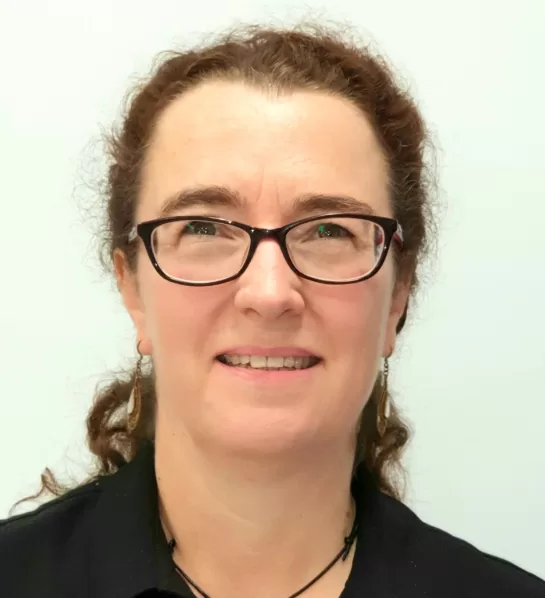
PRESENTATION TITLE - What’s Wrong with Orangutan Kickboxing Shows? Scrutinizing Wildlife Tourism as a Form of Visual Consumption
Co-Presenter - Judith Benz-Schwarzburg
ABSTRACT - Using non-human animals in tourism contexts is ethically challenging. While non-consumptive wildlife tourism does not result in animal death, it might still impair animal welfare or involve other kinds of wrongdoing to animals. In this paper we are concerned that captive encounters can negatively influence how we perceive animals and how we understand the human-animal relationship. We argue that taking an approach to wildlife tourism that deliberately aims beyond an anthropocentric stance encourages us to question the role of animals as entertainment objects and explore what a broader notion of wrongdoing can contribute to a refined definition of wildlife tourism. Our discussion makes use of two crucial dimensions of the positioning of animals by Stewart and Cole (2009): visibility/invisibility and objectification/subjectivity. We reveal and discuss interlinks between the two dimensions and tackle ethical pitfalls. The example of an orangutan kickboxing show elucidates how the described concerns manifest in animal-tourist interactions.
BIO - Georgette Leah Burns, an Environmental Anthropologist at Griffith University in Australia, specializes in understanding human interactions with nature. She is currently exploring the opportunities of virtual wildlife tourism for more equitable co-existence of people and non-human animals. Leah is co-editor of Engaging with Animals: Interpretations of a Shared Existence (2014).
A-Prof Stephanie Collins

PRESENTATION TITLE - A Care-Ethical Approach to Structural Injustice
ABSTRACT - A structural injustice occurs when social, economic, or political processes produce unjust outcomes, where those processes cannot be reduced to identifiable wrongs perpetrated by isolatable agents. Classic examples include climate change, widespread homeless, and exploitative work practice. In circumstances of structural injustice, responsibility can seem to slip through our fingers. This paper proposes a care-ethical approach to understanding responsibility for structural injustice. On this approach, responsibility derives from the inevitable fact of human interdependency. This responsibility calls upon each of us to perform contextually-embedded and open-ended actions of care. The paper outlines how this approach complements existing approaches in the literature on responsibility for structural injustice.
BIO - Stephanie Collins is an Associate Professor of Philosophy at Monash University. Her books are The Core of Care Ethics (Palgrave Macmillan, 2015), Group Duties (Oxford University Press, 2019), and Organizations as Wrongdoers (Oxford University Press, 2023). She has published widely in peer-reviewed journals across philosophy, political science, and law.
Tarik Cutuk
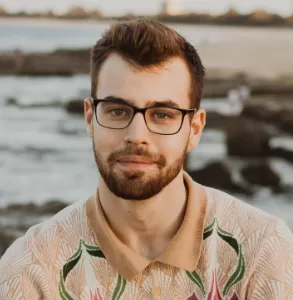
PRESENTATION TITLE - Unbecoming Modernity: Indigenous Knowledges, Ways of Being, and Decolonial Futures in Australia
ABSTRACT - Australia’s crises—ecological, social, and political—are deeply entangled with modernity, a colonial project rooted in extractivism and environmental destruction. While policy frameworks increasingly acknowledge Indigenous knowledges, they often instrumentalise them without challenging the logic of modernity/coloniality itself.
This paper argues that true transformation requires non-Indigenous Australians to engage in a process of “unbecoming” modernity—relinquishing dominant epistemologies and reorienting toward Indigenous cosmologies, ontologies, ethics, and ways of relating to Country. It examines the risks of technocratic co-option and explores how relational engagement with Indigenous philosophies can reshape governance, ethics, and human-nature relationships.
Exploring themes of ecocentric governance, decolonised futures, and everyday ethics, this paper invites reflection on how we might move beyond modernity’s constraints to cultivate an ethical, postcolonial future grounded in reciprocity, accountability, and connection.
BIO - Tarik Cutuk is a postgraduate at the University of Queensland’s Graduate Centre in Governance and International Affairs. Based in Umpi Korumba (Brisbane), he has a background in philosophy, history, and literature. His work reflects upon modernity, the Australian state, and explores ethics and spirituality, alongside activism and social transformation.
A-Prof Chris Degeling

PRESENTATION TITLE - The Dilemmas and Trade-Offs of Upstream One Health Pandemic Prevention
ABSTRACT - Governments are being urged to adopt an upstream One Health approach to prevent future pandemics. One Health is an integrated approach that aims to optimise and balance the health of humans, animals and ecosystems. Prevention is a central value in public health but is under-theorised in One Health. To head upstream One Health thinking and action needs to focus on the socio-economic and ecological interdependencies that drive zoonotic emergence.
BIO - Chris Degeling is Associate Professor at the at the Australian Centre for Engagement, Evidence and Values at the University of Wollongong, Australia. As a social scientist and empirical bioethicist with a background in veterinary medicine – Chris’ research focuses on the intersection of public health ethics, public health policy and emerging issues at the human-animal-ecosystem interface.
Hannah Della Bosca
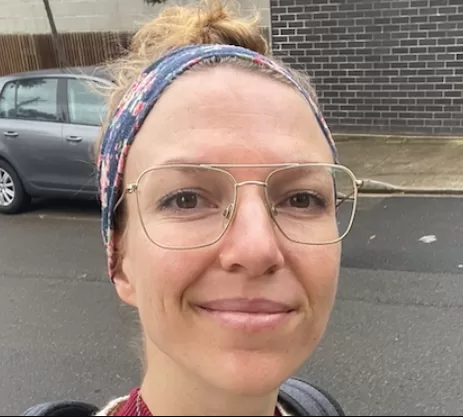
PRESENTATION TITLE - Vulnerability as Method: Expanding the Concept for Multispecies Justice
ABSTRACT - The concept of vulnerability is central to political and legal strategies of social justice, and typically refers to the heightened state of risk and exposure to harm experienced by specific human, animal, and ecological communities. In this talk, I present an alternative concept of vulnerability active within feminist, decolonial, queer, and crip scholarship. Vulnerability here is recognised as an inherent quality of all living bodies, enabling both social inequalities and ethical relations. This talk explores both concepts of vulnerability in the context of justice-oriented climate adaptation, and considers whether and how a more expansive approach to vulnerability may further multispecies politics and methods of inquiry.
BIO - I am a visual artist and PhD candidate in the Department of Sociology and Criminology at the University of Sydney. My thesis explores climate adaptation policy as an opportunity for multispecies justice, and looks at ant-human relationships to explore practices of community, identity, and control between species. My approach is informed by previous research with the Sydney Environment Institute around environmental planning processes, community experiences of disaster, and environmental justice movements.
Dr Dianne Dibley
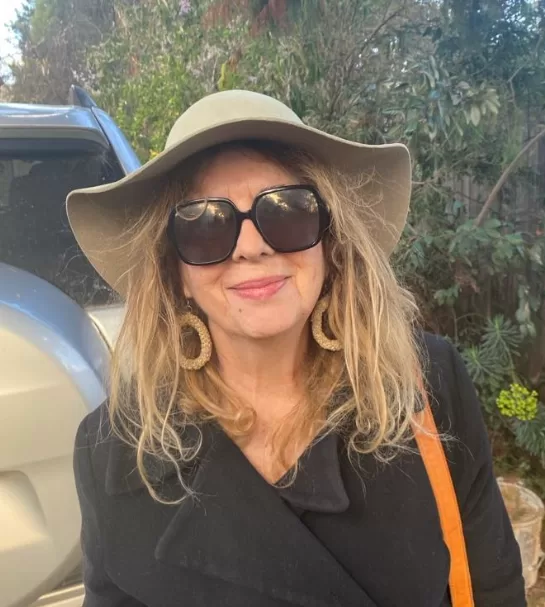
PRESENTATION TITLE - Imagining an Earth Ethic
ABSTRACT - In the Anthropocene we have created a complex reality that has paralysed our decision making. Our way of thinking and organising knowledge is divisive and limited. It does not recognise disciplinary knowledge as constructed reality; knowledge that we need to apply with caution when we are deciding how we want to live and indeed how to survive.
This paper explores a way of reconstructing knowledge for our vexed times. It seeks to find the common ground across all our knowledge and consolidate it in an Earth Ethic that encapsulates a common purpose for our time.
Firstly, it articulates an understanding of sustainability that is consistent with the ideal of an Earth Ethic. Secondly it identifies the foundations of an Earth Ethic. The third line of enquiry brings together the sustainability and ethical foundations of an Earth Ethic by identifying historic and emerging intersections in knowledge and practice.
BIO - Di Dibley is an environmental lawyer with a long career in environmental advocacy and policy. This includes time as the National Policy Advisor, Environment and Energy to the Australian Industry Group, Director of the Sustainable Industries Office (ACF) and National Policy Director of Greening Australia. She taught constitutional law at the University of Canberra. She the joint convener of ZeroSE, a Citizens Alliance committed to taking south east NSW to a low carbon economy. She has a PhD in Human Ecology from the Fenner School at ANU. Her thesis was an inquiry into an Earth Ethic for the Anthropocene and she is currently finalising on a book based on her thesis findings.
Cade Diehm

PRESENTATION TITLE - The Green Panopticon: Sustainable Technology and the Expansion of Control
ABSTRACT - As societies adopt "sustainable" digital technologies, their risks are often downplayed. Digital infrastructure is wholly dependent on capital for every stage of its life, creating an underappreciated power dynamic that traditional resistance struggles to counter. This echoes the history capital-sanctioned apparatuses of violence—from modern anti-labor policing to drone warfare and adversarial AI.
Through socio-technical threat modeling, this research examines how Western frameworks of land management, "smart" systems, and always-on computing risk weaponization under the banner of ecological necessity and ecological justice. These technologies are smuggled into societies, promising efficiencies and optimisations, but also providing new forms of socio-environmental discipline that disproportionately impact marginalized communities. Through analysing the potential implementations of resilient "green new deal" infrastructure across different regional contexts, we reveal how climate action innovations provide the secondary benefit of strengthening structures of oppression, creating new scaffolding that undermining the very communities and non-human societies they claim to protect.
BIO - Cade is the founder of New Design Congress, an independent research organisation that confronts the gap between declared narratives and digital realities. Drawing on expertise in information security and digital anthropology, Cade examines technology’s impact on society and ecology. His work—informing groups from the European Parliament to PEN America—highlights the fragility of digitised societies and advocates for sustainable, equitable ecosystems.
Liz Downes
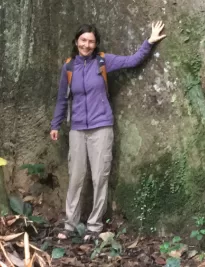
PRESENTATION TITLE - Rights of Nature, Ecocentrism and Resisting Extractivism: Lessons from Ecuador
ABSTRACT - This will be an introduction to how Rights of Nature constitutional law, ecocentric perspectives and Indigenous led movements are empowering the resistance against transnational mining in Ecuador.
Since the landmark Los Cedros case in 2021, how successful have other land defence cases been in Ecuador? Has the rights of nature been useful in stopping the expansion of mining? What are the challenges, and how are Indigenous cosmovisions and ecocentric perspectives continuing to shape discourse and activism?
BIO - Liz Downes is a director of Rainforest Information Centre and campaigner with AidWatch, working in solidarity with our Earth and with all people and other-than-humans. She has a long history of direct activism and campaigning, and is a facilitator of "Deep Ecology" processes and workshops. Over the past few years, her dual focus has been working in solidarity with land defenders in Ecuador against transnational mining projects, and researching the expansion of so-called "Critical Minerals" and associated impacts by Australian mining companies.
Philipa Duthie

PRESENTATION TITLE - Conversing with River: Nurturing multispecies relationships through cooperative inquiry
ABSTRACT - Human actions are changing the nature of life on our planet. Developing participatory ways of engaging with the more-than-human world is vital to restoring multispecies relationships and resituating humans within a subjective community of life. This paper will draw on experiences shared during the recent cycle of The Living Waters project, an ongoing cooperative inquiry established in 2021 by participatory action researcher Peter Reason and other colleagues. Through phases of action and reflection, participants developed a deep connection with their body of water, finding creative ways to communicate and engage with River as a sentient being. Sharing these encounters with the inquiry group and witnessing each other’s' accounts fostered a profound sense of kinship within the group, deepening our response-ability toward our rivers and the wider Earth community. Cooperative inquiry as a participatory model opens up new possibilities for engaging with the more-than human world and nurturing ethical multispecies relationships.
BIO - Philipa Duthie is an independent scholar, transdisciplinary researcher and storyteller. She is also the producer and co-host of the Re-Generation Rising podcast with Daniel Christian Wahl. Philipa’s work explores how ecological, literary, philosophical and scientific understandings of the natural world can contribute to a relational ecology of belonging.
Geoff Ebbs
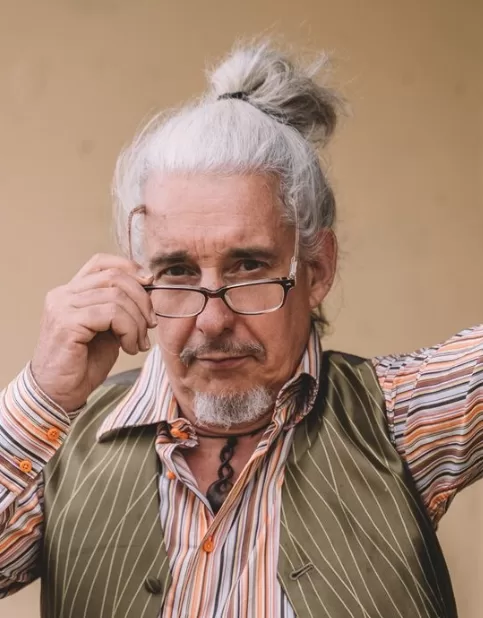
PRESENTATION TITLE - The Missing Middle and proactive well-being
ABSTRACT - The tensions between commercial viability and equitable sustainability tear apart many social enterprises, especially grass-roots organisations seeking to deliver ethical, regenerative outcomes. All innovators need to be nurtured and connected to an eco-system of like minded operators to build the momentum for change.Despite public statements in support of innovation and long term progress toward an ethical and regenerative future, Australian governments are focused on policies that strengthen business as usual and isolate change makers.During my recent research with 36 such organisations, ten of them stopped trading and one of them is currently embattled in legal disputes with the Queensland government. Thankfully, there are a handful of organisations dedicated to the creation of intermediaries to occupy the "missing middle" and connect ethical innovators to the broader value chain.
BIO - Geoff Ebbs is a researcher and lecturer at Griffith University and a director of the Food Connect Foundation. His research into ethical food systems was recently published in Green Agenda, the 2024 Sustainability Transitions Conference in Norway, the 2023 Food Security Inquiry and his 2022 book, Your Life Your Planet.
Mieke Elzer
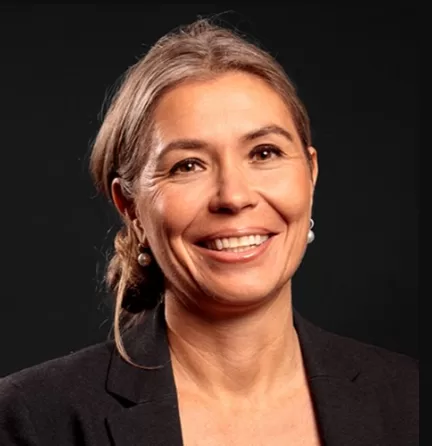
PRESENTATION TITLE - Ecological Jurisprudence in the Bellingen Shire
ABSTRACT - The dominant environmental law paradigm is underpinned by an anthropocentric theory of law that promulgates human exceptionalism and supremacy. The ensuing fascination with perpetual economic growth and natural resource consumption has led to what scientists are referring to as Earth’s sixth mass species extinction. A paradigm shift in how humans view themselves in relation to nature is inevitable. The current increasing interpretation however, between law and ecology proposed by ecocentric legal philosophies arguably falls victim to the same linear narrative, acknowledging intrinsic rights of nature, but through the same subjugating systems of law. Can the emergent theory of ecological jurisprudence offer a framework to step outside of this aporia? In discovering a link between the emergence of Ecological Jurisprudence in the Bellingen Shire and a growing exposure with the language of local Gumbaynggirr Peoples the article proposes Indigenous Knowledge Systems are integral in our theoretical development ecological jurisprudence.
BIO - Mieke Elzer is a Senior Property & Commercial Law Associate at Attwood Marshall Lawyers, practicing across New South Wales and Queensland. She is deeply engaged in exploring how Indigenous Knowledge Systems can be meaningfully integrated into existing property law frameworks, fostering more ethical and sustainable approaches to land governance.
Catherine Falco

PRESENTATION TITLE - Can we decentre the human in human-centred psychology?
ABSTRACT - Psychologists and psychotherapists who specialise in the emotional and mental health impacts of climate change propose that the profession has an important role to play in navigating this threshold moment. However, the mainstream practice of psychology—a discipline based in individualism—is largely anthropocentric. In order to ethically and genuinely engage in planetary health, the profession will need to broaden its lens. How does it do this? This presentation will highlight the various ways psychology can adapt to a world with a rapidly changing climate. Decolonising frameworks offer a crucial response to a western worldview that dominates nature; multispecies justice frameworks help to see the violence of human exceptionalism; principles and practices from the subdiscipline, ecopsychology, enable clinicians to work with humans as beings embedded in complex ecosystems; and systems thinking provides a contextual and relational understanding of mental and emotional health—a wider lens that offers a bigger, non-pathologising picture.
BIO - Cath (she/her) lives on Bundjalung Country tending 12 acres of wet sclerophyll forest in the biodiverse bowl of the Tweed Caldera. She is a highly experienced psychologist and systemic family therapist completing a research PhD at The University of Sydney investigating ecological emotions and systems thinking focusing on community-based interventions.
Dr Mary Graham
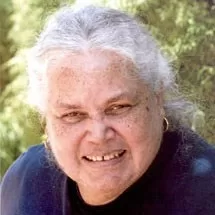
PANEL PRESENTATION TITLE - The Relationalist Ethos and Indigenous Ethics
Co-panelists - Prof Anne Poelina and Prof Yin Paradies
BIO - Dr Mary Graham is an Adjunct Associate Professor in Political Science at the University of Queensland. Mary grew up in South-East Queensland, and is a Kombu-merri person of the Yugambeh language speaking People, through her father’s heritage and a Wakka Wakka clan member through her mother’s heritage. With a career spanning more than 30 years, Mary has worked across several government agencies, community organisations and universities. Mary is a lecturer with the University of Queensland, teaching Aboriginal history, politics and comparative philosophy. Mary has written and published many prominent works, including publications in the Aboriginal Encyclopaedia, training modules for Cross Cultural Awareness and a host of academic papers. Mary is a Director of Future Dreaming Australia, an Indigenous and non-indigenous partnership organisation working to increase cross-cultural ecological knowledge in Australia (www.futuredreaming.org.au)
Dr Marco Grix
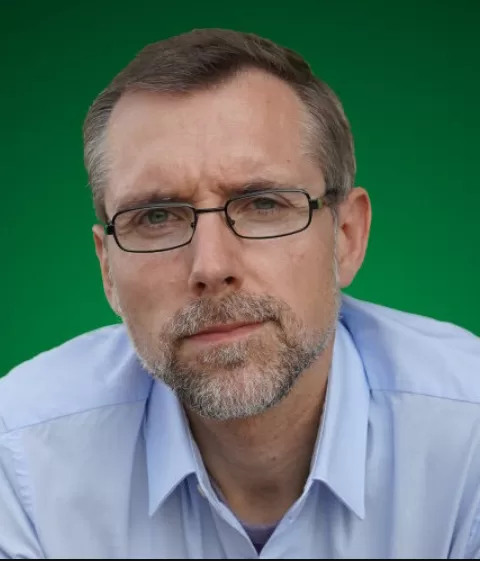
PRESENTATION TITLE -Corporate Stewardship Through Social Practices
ABSTRACT - Business organisations are central to addressing critical global challenges, including ecological degradation, social inequality, and economic instability. While existing frameworks like ESG and the UN Global Compact focus narrowly on harm avoidance, this presentation introduces a practice-centred corporate stewardship framework that reimagines organisations as dynamic participants in social practice ecologies. Grounded firmly in normative ethics, this framework positions businesses as key contributors to value creation, cross-cultural innovation, and communal resilience. By conceptualising organisations as embedded within interconnected internal and external practices, the approach highlights the normative potential of social practices to guide ethical corporate behaviour. In the context of New Zealand’s SME-dominated economy, my framework aims to identify common but differentiated stewardship responsibilities and actionable pathways for businesses to foster social, ecological, and economic flourishing. The presentation explores how a practice-centred perspective offers a more meaningful and sustained approach to corporate stewardship, surpassing the limitations of conventional business ethics models.
BIO - A former banker and management consultant, Marco is now a Research Fellow in Philosophy at the University of Auckland. Specialising in ethics as well as social, political, and environmental philosophy, he also serves on the boards of two environmental NGOs and convenes the AAP’s Philosophy in the Community Committee.
Katy Gwiazdon
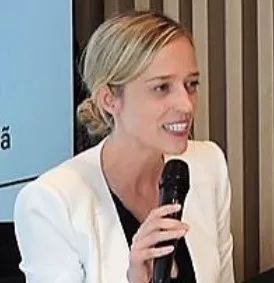
PRESENTATION TITLE - How Are We Still Here? And How Do We Move Forward? Colonialism in Climate, Conflict, and Care
ABSTRACT - I will seek to explore colonialism, rooted in discrimination, exploitation, and commodification, as seen in the present-day inter-related issues of climate change (harms and solutions), conflict (roots and responses), and even care (what issues states and individuals choose to act/not act upon). How are we still here? And where do we go from here? The world continues to be led by those with unequal power who seek to concentrate and concrete that unequal power, and correspondingly, the world continues to suffer - and suffer more, and suffer more unequally. Through division, they conquer. Through death, they live. Through religion, they rule. And through the law, they are legitimized. Just as these harmful actors learn from the colonizers of the past and present, we must look to the liberators of the past and present. What is our path to freedom, equality, and dignity? What is our path to life?
BIO - Kathryn Gwiazdon, based in Washington DC, is the Chair of the Ethics Specialist Group of the World Commission on Environmental Law of the International Union for the Conservation of Nature - the world's oldest and largest international environmental organization, with state, NGO, and Indigenous Peoples as members. She is also the Executive Director of the Center for Environmental Ethics and Law and a Professor of International Law at Northern Illinois University College of Law, currently teaching seminars on Decolonizing International Law, Climate Change Law, and Human Security and Humanitarian Law. She recently co-edited "The Routledge Handbook of Applied Climate Change Ethics" and helped launch the Recife Declaration on Racism as a Global Public Health Crisis, an Afro-Indigenous-led project of the International Network for Epidemiology in Policy. Her heart is in bringing together communities of care, so-often women-led, too often unequally harmed, and raising the evidentiary value of the lived experience.
Steven Hail

PRESENTATION TITLE - "Finding The Money" documentary screening - Thursday evening @ 6pm (refer to Conference Program for details)
Co-presenter - Gabrielle Bond, Modern Money Lab
ABOUT THE FILM - This film addresses the vital role of currency issuing federal governments in building an ethical future. It will empower anyone who has watched it to effectively counter the "pay for" myth - that money or savings have to be found first before climate and inequality solutions can be acted upon.
FINDING THE MONEY follows former chief economist to Senator Bernie Sanders, Professor Stephanie Kelton, on a journey to unveil a deeper story about money, injecting new hope and empowering countries around the world to tackle the biggest challenges of the 21st century: from climate change to inequality.
"In a world of epic, overlapping crises, Stephanie Kelton is an indispensable source of moral clarity … the truths that she teaches about money, debt, and deficits give us the tools we desperately need to build a safe future for all."
Naomi Klein
"A masterpiece! By far the most inspiring economics film I have ever seen. This film is a gift to humanity. Everyone should watch it." — Jason Hickel, author of Less Is More, Professor ICTA-UAB
Keryn Hassall

PRESENTATION TITLE - Ethical futures need public servants with better conceptual resources - whose job is it to help them, and how?
ABSTRACT - Public servants are responsible for advising politicians on policy options. The futures they recommend will depend on the conceptual resources available to them.
The education of public servants has not provided conceptual resources to consider the ethical implications of decisions. Their education in economics and policy gave them the fact-value dichotomy, metaethical noncognitivism, and methodological individualism — philosophical baggage that makes it hard to consider ethical questions. This is a pressing challenge for those who want better government policy and for those public servants who would like to consider ethical aspects of their work.
This presentation will look at examples of ‘just transition’ and ‘public value’ to show how the philosophical and ethical depth is lost when absorbed into public policy discourse, and will suggest ways to help public servants recognise their philosophical baggage and build new conceptual resources for ethical futures.
BIO - Keryn has worked with public sector organisations since the 1990s with a focus on policies and programs aiming to achieve large-scale change, from health sector reform to climate change. She is now focused on the philosophical challenges for the public servants who want to incorporate ethical and values-based perspectives.
Dr Mark Hamilton

PRESENTATION TITLE - An Introduction to Environmental Restorative Justice
ABSTRACT - We’d like to introduce environmental restorative justice (ERJ), a transformative approach to addressing environmental harm and degradation emphasising relationality, care, community engagement between humans and between humans and the more-than-human world.
Co-Presenter - Felictiy Tepper
BIO - Dr Mark Hamilton is a senior lecturer in law and criminology within the Thomas More Law School, Australian Catholic University. His research primarily focusses on the application of restorative justice to environmental crime/harm. He has published widely on this topic and has conducted research in both Australia and overseas.
https://www.acu.edu.au/about-acu/faculties-directorates-and-staff/faculty-of-law-and-business/thomas-more-law-school/school-staff/mark-hamilton
Dr Sarah Houseman
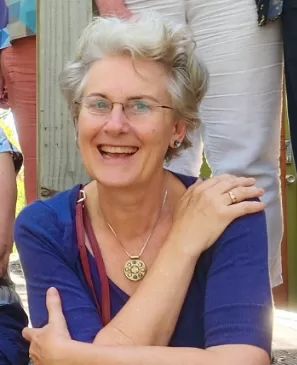
PRESENTATION TITLE - Towards collective empowerment in community-based energy transitions
ABSTRACT - Complex system-wide transitions to renewably powered energy systems raises the ethical opportunity of just transitions. There is growing concern that if top-down approaches dominate the transition process then existing injustices will be entrenched, generating new conditions of inequality. This paper discusses preliminary findings from NED Foundation's social research transitions project. A short-term, multi-sited ethnography combining multimedia with an interventional ethnographic presence, I have investigated participants' experience in two community-led transitions in regional Victoria.
Sustainability transitions literature helps contextualise research insights. Transition requires communities to navigate the process over time. I identify 6 key enablers for an empowered dialogue between community participation and engagement, and top-down expertise, policy and funding:
Precondition of community practiced at working cooperatively.
Coherent and evolving community leadership.
Compelling visions of the community's future.
Adaptive theories of change support dynamic practice.
Community relationships prioritised over transactional goals.
Transition by doing and being the change builds community trust.
BIO - NED Transitions Program Coordinator, Sarah's professional background encompasses organisational leadership, and education across sectors and audiences. Sarah is a social researcher specialising in guiding organisations through complex decision-making processes and fostering participatory governance. Her approach integrates innovative practices with deep understanding of systemic interactions to stimulate organisational learning and change.
Chelsea Hunnisett

PRESENTATION TITLE - Regimes of authority: an assessment of Commonwealth Treasury’s ability to develop a wellbeing economy in Australia
ABSTRACT - In the Age of the Anthropocene, the consumptogenic system is disrupting the ability to improve climate, health and equity (CHE) outcomes. Public, private and bureaucratic institutions are creating and perpetuating economic norms to retain power, leading to a governance environment that prioritises harmful extractivist activities above CHE needs. The literature reveals several policy ideas that seek to restructure and redefine the institutions underpinning the consumptogenic system, including the wellbeing economy. The wellbeing economy reimagines the purpose of the economy to prioritise human flourishing on a safe planet. To effectively implement a wellbeing economy, significant changes in how institutions and governments act, including the institutional and economic norms they adopt, is crucial. This project is assessing the dimensions of institutional authority of the Commonwealth Treasury, and its ability to develop a wellbeing economy, with the aim of determining the relationship between institutional economic norms, authority and CHE outcomes.
BIO - Chelsea Hunnisett is a PhD Candidate and Government Relations Specialist in the Planetary Health Equity Hothouse. Chelsea's research focuses on the implementation of a wellbeing economy in Australia. Chelsea is an experienced policy, advocacy and government relations specialist with expertise in planetary health, food and preventive health policy. Chelsea has worked in policy, advocacy and government relations for over 10 years, with her most recent appointment as Policy and Advocacy Manager at the Climate and Health Alliance.
Marianne Jago
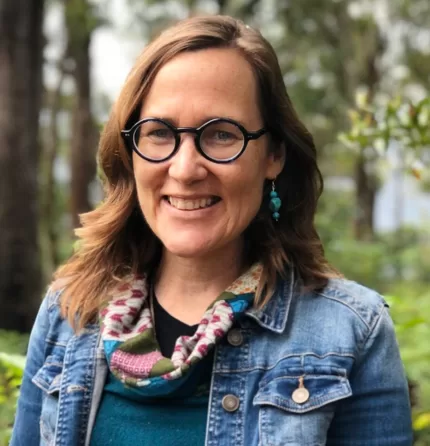
PRESENTATION TITLE - Song about Feeling: River-listening and the remaking of place
ABSTRACT - This PhDresearch recounts an Indigenous-mentored journey to know my response-ability as place, and how to enact it. Drawing on a kin-centric theoretical framing, my methods focus on relational, embodied story-making, an eco-philosophy walked, swum, and dreamt, in field, River and Sky, that engages the sacredness and agency of Wahlurbal Country. Through methods described in sensory ethnography, and creative geography (such as song-making, field-journalling, and essay), I ask River to teach me my responseability-as place (personally, collectively); and how the creative impulse itself might animate River relations and voices. My explorations reveal multiple and continuing traumas of European colonisation felt with River, and immediate and escalating threats from extractive mining. I experience Country as leading me into a relationship of deepening respect, sacredness, as we explore practices that allow right response, alongside a recognition that the shift in Western human consciousness that lives its co-becomings with place is already here.
BIO - Ria is a writer, River philosopher, lawyer and musician. She has worked, studied and travelled in over thirty countries, including Myanmar, Nepal and Chile, offering belonging-with where-ever she goes. She is a graduate of Oxford University, and University of QLD, and is currently finalising her PhD at Sunshine Coast University.
Tiyana Jovanovic

PRESENTATION TITLE - An Ontological Ethics of Resilience: Integrating Values for Adaptive Social and Ecological Systems
ABSTRACT - All change, whether social or environmental, beneficial or detrimental, is driven by three interrelated ontological processes: continuity, discontinuity, and emergence. Resilience – a critical concept for ensuring a safe, integrated, and liveable future – depends on mechanisms that stabilise continuities, enable adaptation to discontinuities, and foster transformation through emergence. This paper presents an ontologically grounded ethics of resilience, moving beyond dichotomies such as deontology vs consequentialism or relativism vs absolutism. Instead, it demonstrates how diverse ethical frameworks interact within complex systems to support resilience. In social systems, rights-based approaches promote stability, virtue ethics supports adaptability, and care-centred ethics fosters transformative possibilities. Applying this lens to ecological systems, conservation practices preserve stability, adaptive management enables incremental change, and regenerative approaches drive transformation. By integrating these ethical paradigms into everyday practices, we can reimagine resilience as a value-driven framework for navigating change and building a liveable future for individuals, communities, and ecosystems.
BIO - Tiyana is a Doctoral candidate at the University of Queensland and the Indian Institute of Technology, whose research focuses on developing ontologically grounded frameworks for resilience and empowerment within social and ecological systems. Her work combines expertise in normative ethics, philosophy, and systems thinking to address the complexities of sustainable and equitable development. Beyond academia, Tiyana is an impact strategist and the founder of the Humanitarian Changemakers Network, which uses transmedia storytelling to engage young Australians in social change. She also serves on the Strategic Direction Group of the New Economy Network Australia, contributing to transformative strategies for building an ecologically sustainable and socially just society. Tiyana’s work reflects a deep commitment to bridging theory and practice, creating actionable frameworks that integrate ethics, resilience, and systems thinking to navigate change and foster a livable future for individuals, communities, and ecosystems.
Paula Kensington

PRESENTATION TITLE - Beyond Sustainability - the need for business to think beyond net zero
ABSTRACT - We only have a handful of years left to be able to turn things around in the way that we treat our environment so that we do not breach every planetary boundary and end up in a world of 3+ degrees global warming.
It's taken 30 years to get to our first globally mandated sustainability standards and business is still grappling with what to do and when to start. Given these standards do not go far enough in terms of getting business to change course, we need to educate, support and empower business to do better for all stakeholders and not to wait for regulation to drive better behaviours.
How can a business think about its ability to regenerate in their whole business model and value chain. This is where our Authentic Sustainability Measure with a regenerative index will help to cut through to deliver a comprehensive beyond sustainability report.
BIO - A finance leader of 30+years working in International Corporate commercial roles always felt something was missing when it came to developing business models and reporting to executive teams that spoke one story in public and yet delivered and believed a very self centred, ego driven different story internally.
Nathan Kinch
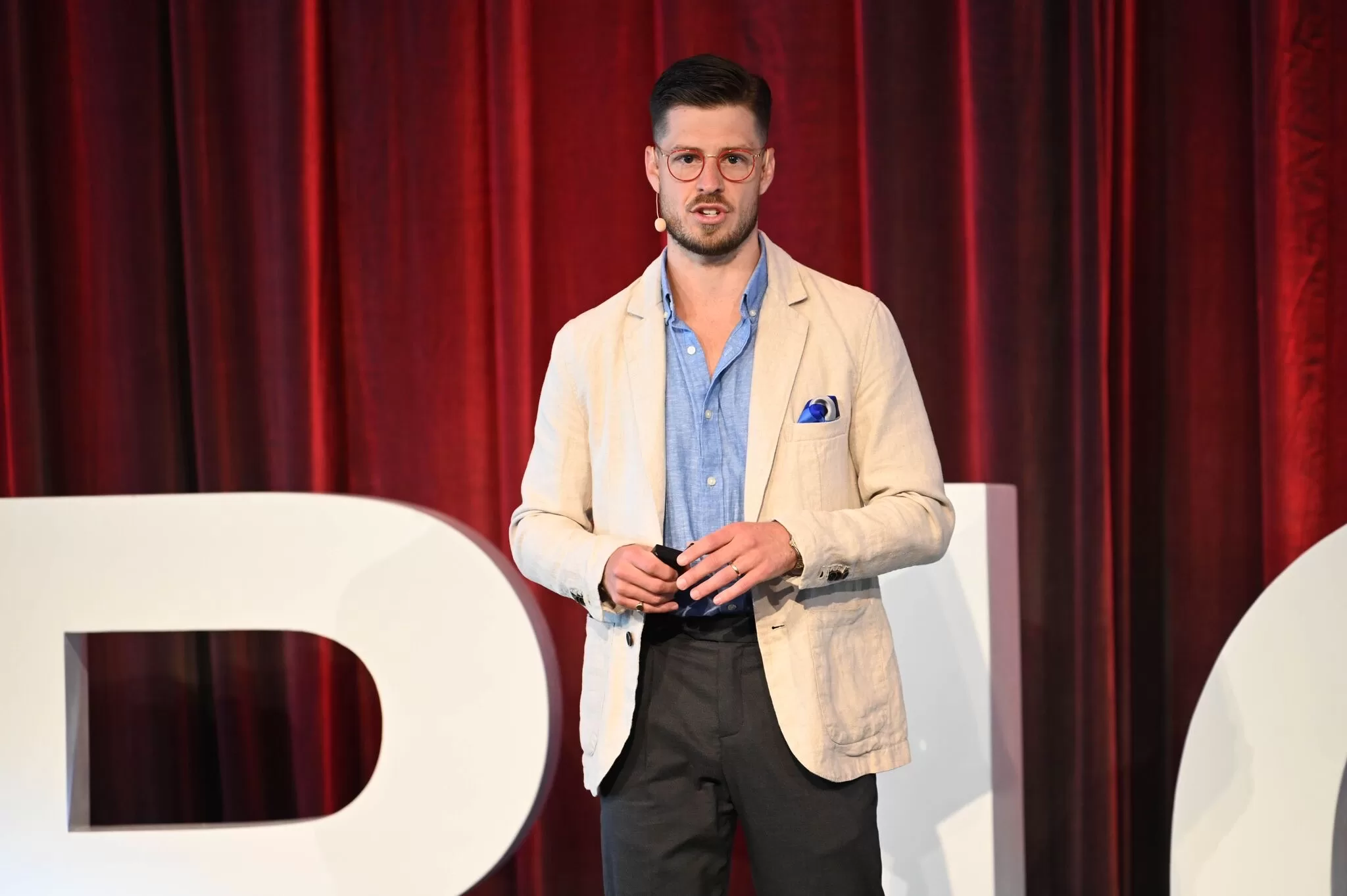
PRESENTATION TITLE - Why ethics needs to be particiaptory
ABSTRACT -Ethics, the process of reflecting on our first order beliefs, in an attempt to do what is most good and right, is often a rather technical and exclusive process. This leads to all kinds of blind spots, biases and unintended consequences out in 'the real world'. Instead, ethics ought to be diverse and inclusive, wherever possible. In this talk, Nathan Kinch will share practical tips for how to operationalise participatory ethics at different levels of organisation (government, business and community), supporting processes and practices where the human and non-human communities most impacted by a given initiative can be involved in every step of normative evaluation. Through this we can get better at doing what is truly good and right for people and planet, hopefully to the benefit of all life within the biosphere for many years to come.
BIO - Nathan (Nate) Kinch is a practical ethicist, organisational designer and researcher. His work centres around the question; how might we best design trustworthy organisations, technologies and 'systems' that contribute to a healthy and dignified life for all, within planetary boundaries? To do this he draws on many branches of philosophy, systems science, the cognitive sciences and related disciplines.
Throughout his career Nate has worked with organisations like CSIRO, The Australian Government, The UK Government, Microsoft, Facebook’s TTC Labs, Autodesk, The Ethics Centre, Visa, Telefonica, and TELUS.
Currently he is a Fellow of The Royal Society of the Arts, as well as the Lead of Ethics in Action, a monthly workshop series that teaches practical ethics. He is also the Ethicist in Residence at CoLabs, and guest lectures for a number of universities.
Previously Nate was an angel investor, having made 76 impact-focused investments. Earlier in his career, Nate was the founding CEO of a venture capital-backed startup that used machine learning to predict the propensity that elite athletes have to incur soft-tissue injuries.
In everyday life Nate's an urban rewilder, community convener and ‘inner developer’, bringing regenerative thinking, practice and culture into the heart of his little corner of Melbourne. Most of his days are spent joking, laughing hysterically and being as joyful as possible with his daughter and partner.
Prof. Anthony Langlois
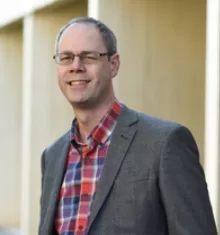
PRESENTATION TITLE - Ethics amid Crises
ABSTRACT - Ethical reflection has always considered how it is we should live together. That task must now be addressed amid a time of unprecedented and concatenating global crises. Efforts to comprehend the situation have generated new analytical approaches to crisis analysis – among them, the polycrisis. Missing from much of this work however is critical engagement with the normative dimensions of the various crises and reflection on the ethical frames required to navigate our way forward together. Addressing this deficit in both theoretical and practical work is critical for effectively understanding and addressing the polycrisis. This paper will outline some initial steps in that direction in conversation with the emerging literature on the topic.
BIO - Professor Anthony J. Langlois is the Stan Perron Dean of Applied Ethics in the Faculty of Business & Law at Curtin University. He was educated at the University of Tasmania and the Australian National University.
Anne Lanyon
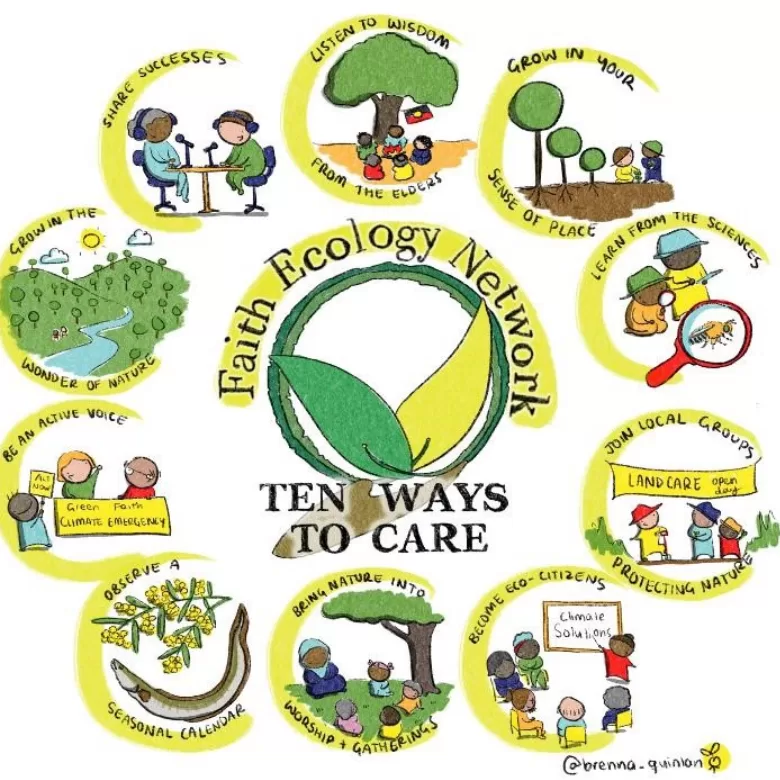
PRESENTATION TITLE - Earth is speaking to us: Faith based approaches to Earth ethics
Co-Presenter - Sue Martin
ABSTRACT - “If the science tells us we come from the same source, the extinction of species is the extinction of another mode of divine presence.” John Feehan.
Coming from diverse faith perspectives and the ecological sciences, we lament human actions against Earth that are leading to increasing extinctions.
This workshop will model some ways the Faith Ecology Network (FEN) is using this framework with diverse faith groups and ecologists.
The Ten Ways draw from First Nations peoples, scientists, activists, community groups and faith traditions to inspire and guide us to care for Biodiversity. Joining with all people of good will we share attitudes of wonder and care that offer hope Suitable for anyone interested in exploring, discussing and sharing ideas about how FEN can and does contribute to growing a society that centres the health of the living world, human communities and connection to place, thus countering eco-anxiety in our human communities.
BIO - Anne Lanyon, Community Educator, is currently the volunteer Co-ordinator of the Faith Ecology Network, the St Anthonys Kierans Creek Landcare Group, convenes the Frenchs Forest Parish Social Justice Group, a member of the Laudato Si’ NSW Network, a local bush carer, involved in a variety of peace, ecology and justice groups including on the board of Jubilee Australia Research Centre, loves spending time with young people doing bushcare and connecting with them to a love of all life.
Victoria Lawson

PRESENTATION TITLE - The ethics of spiders in our homes: from mastery to co-habitation?
ABSTRACT - Creating liveable futures pre-supposes a different ethical relationship to nature than mastery. Rejecting master narratives has been pursued by both feminists and environmentalists in political and philosophical disciplines. In particular, in our Australian context, Val Plumwood’s eco-feminism.
Taking on Plumwood’s theory I consider that positive interactions with spiders inside our homes (because who has not experienced interacting with a spider at home?) can be a catalytic moment for rejecting domination and mastery values. Unwelcomed nature indoors disturbs boundaries of indoor/outdoor, human/nature and self/other present in western master narratives. House spiders are neither companion species nor commodified products, instead co-habiting indoor environments we prefer to control. Fear, horror and disgust often result from human-spider interactions, yet it is possible to experience love, respect and care towards those with whom we share the earth. Fundamentally changing our human-nature relationships including with house spiders reflects ethical concepts that underpin a liveable future.
BIO - Victoria Lawson has completed a Bachelor of Arts at the University of Queensland majoring in Philosophy and Ancient History. She is currently in her honours year in Philosophy focusing on ecology and feminism supervised by Michael Vincent. She is interested in ancient history, myth, philosophy, feminism and environmental philosophy.
Dr John Lee
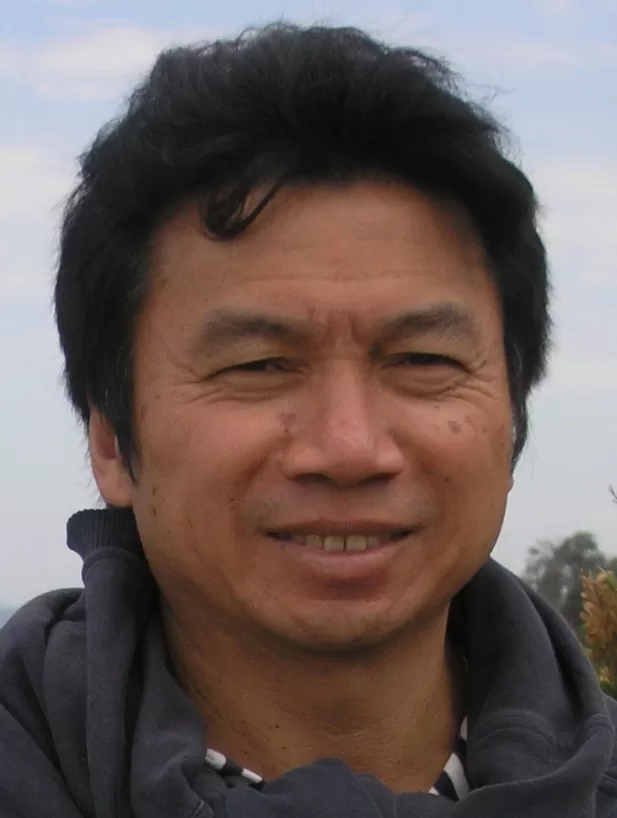
PRESENTATION TITLE -Care of the Outer Space Environment: An emerging aspect of human involvement with outer space.
ABSTRACT - Currently, in the 2020's as we progress further into the 21st Century, an increasing number of organizations, both Government and Private, are finessing plans for the exploration and economic development of Outer Space. A need exists, for all parties in Outer Space activities to be seen to be addressing the ethical interests of the general population. In this respect, there are valuable potential benefits to planet Earth from Outer Space activities. There is an emergent need to raise questions and issues regarding care of the outer space environment, so that these questions and issues can be identified, analysed, prioritized and mitigated in a timely manner, before any criticality is reached.
This approach would assist Outer Space Scientists, Engineers and Planners in understanding the positioning of Sustainability goals within the triple boundaries between technical-financial capability, ethical practice and legal obligation, when planning and executing Outer Space missions. Refer https://www.careouterspace.org/
BIO - Dr John Lee is a Complex Systems specialist at Footprintenergy.com.au - environmental consultants, and Principal at 'Care of the Outer Space Environment'. John holds a PhD in Education, Bachelor of Engineering (Civil), Graduate Diploma of Business and Master of Business (Marketing) and is the recipient of prestigeous Engineering Excellence Awards.
Hannan Lewsley

PRESENTATION TITLE - Storying the River: Toward a Feminist Ethics of Care
ABSTRACT -This paper seeks to story a section of Dyarubbin (the Hawkesbury-Nepean River) – an iconic yet degraded waterway encircling the Sydney Basin. Like many peri-urban waterways, the mounting pressures of population growth, industrial and agricultural pollution, and rapid urban development since colonisation, have placed an intense pressure on the health of this waterway that has been managed for tens of thousands of years by First Nations people. This paper extends a feminist ethics of care to the river, a complex living entity, moving away from the paternalistic, extractivist, and anthropocentric ways of knowing that perpetuate the ethical and environmental crisis of colonialism and its associated hierarchical binaries of carer and cared for. Seeking new ways of knowing, this paper employs to reposition our assumptions and approaches in ways that move away from extractivist mentalities to foreground the relationality between humans and the more-than-human world.
BIO - Hannan Lewsley researches policy with the ACT Government and is a PhD candidate at the Writing and Society Research Centre at Western Sydney University. His PhD explores how the novel operates to challenge the anthropocentric inheritance of colonialism in contemporary Australian fiction.
Paige Maguire

PRESENTATION TITLE - Environmental philosophy: a look at life beyond individual selfhood
ABSTRACT - In Western-style liberal democratic systems individual ‘selfhood’ determines our obligations to land; this perspective has spread through the globalisation of neoliberal politics and economics beyond Western nations. The relational self offers alternative ways to interaction with nature via the practical application of relational obligations found in Aboriginal land ethics. By showing the relationship between Aboriginal ethics and ‘synergistic living’, I will suggest ways to establish an alternative relationship with nature to current Western-style perspectives and actively adjust our relationship with nature.
I will provide opportunities for self-reflection, reflection on the system in which we are raised in Australia and the potentialities of active inquiry. Relationality as a way of life, and inquiry as a form of education, will be the key insights of this discussion. I will consider Aboriginal understandings of country and place, while also addressing current political and philosophical norms which are hastening the climate crisis.
BIO - Paige Maguire has been a philosopher for 7yrs and is currently a PhD candidate at UQ. She is best known for her work on Moral Revolution, Animal Ethics, and Environmental Philosophy as a way of life. Paige has been a presenter for many years and creates a welcoming environment for open discussion, questioning, and truly experiencing philosophy as a way of being in the modern world as we face the eco-crisis; together, we will step beyond classic 1800's conceptual meanderings and into action.
Dr Michelle Maloney
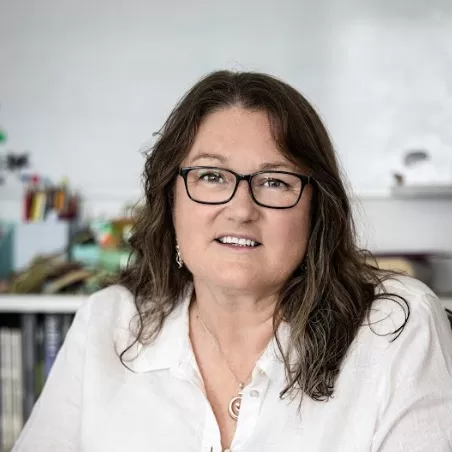
PRESENTATION TITLE - Space Exploration and the Declaration of the Rights of the Moon
BIO - Dr Michelle Maloney is an Earth lawyer and advocate for ecocentric and nature based governance. She is recognised internationally and in Australia for her work advocating for Earth centred law and governance. Michelle is Co-Founder and Director of the Australian Earth Laws Alliance (AELA), and Co-Founder and Director of Future Dreaming, an Indigenous led organisation that works to share Indigenous ecological and governance knowledge with non-Indigenous people and organisations in Australia.
Michelle holds a Bachelor of Arts (Political Science and History) and Laws (Honours) from the Australian National University and a PhD in Law from Griffith University. Michelle’s PhD analysed how regulation can be used to reduce unsustainable consumption. She is Adjunct Fellow, Institute for Sustainable Futures, University of Technology Sydney; Steering Group Member for the Earth Trusteeship Initiative and Advisory Council Member for the Global Alliance for the Rights of Nature (GARN), Co-founder (and outgoing Chairperson) of the New Economy Network Australia (NENA).
Sue Martin

PRESENTATION TITLE - Earth is speaking to us: Faith based approaches to Earth ethics
Co-Presenter - Anne Lanyon
ABSTRACT - “If the science tells us we come from the same source, the extinction of species is the extinction of another mode of divine presence.” John Feehan.
Coming from diverse faith perspectives and the ecological sciences, we lament human actions against Earth that are leading to increasing extinctions.
This workshop will model some ways the Faith Ecology Network (FEN) is using this framework with diverse faith groups and ecologists.
The Ten Ways draw from First Nations peoples, scientists, activists, community groups and faith traditions to inspire and guide us to care for Biodiversity. Joining with all people of good will we share attitudes of wonder and care that offer hope Suitable for anyone interested in exploring, discussing and sharing ideas about how FEN can and does contribute to growing a society that centres the health of the living world, human communities and connection to place, thus countering eco-anxiety in our human communities
BIO - Sue Martin is an agricultural scientist by training, currently working in the leadership team at Jesuit Ignatian Spirituality Australia, passionate about connecting love of the environment with her faith, working to grow a green heart, We can all be integral ecologists. Sue lives and advocates for Country, accompanying platypus living in our waterways. Nature is calling for nurture, to "Bala ga lili", to walk together, caring for our common home.
Lynda McCauley
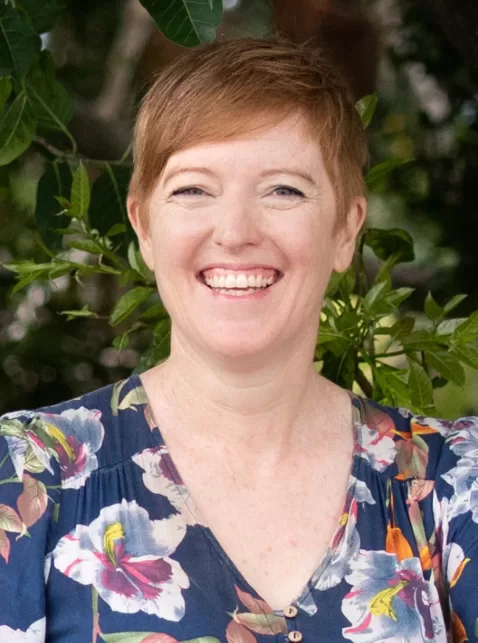
PRESENTATION TITLE -Everyday Ethics: Living Our Way to a Better Future
Co-Presenter - Anne Lanyon
ABSTRACT - This talk explores a lived, deeply relational approach to ethics—one that emerges naturally from our connection with ourselves, others, and the world around us. Rooted in systems thinking, ecological wisdom, and human connection, it offers an integrated way of making ethical living intuitive, embodied, and regenerative—something we feel rather than force.
Rather than offering rigid prescriptions, this talk provides a flexible guide—an overview of the essential elements that allow our ethical choices to feel effortless, regenerative, and deeply sustainable. Ethical living is an ongoing practice of awareness, reciprocity, and attunement to life. Together, we’ll explore how aligning with natural rhythms and reciprocal relationships allows ethical choices to unfold with ease.
Participants will leave with a fresh, grounded perspective and a simple map that can guide our well-being, strengthen resilience, and create a sustainable future.
BIO - As a guide and mentor, Lynda McCauley supports individuals in aligning with their true selves while navigating the complexities of modern living. Her Easy Living Ethos results from over 20 years of exploration, embodiment, and refinement—an approach to ethical living that is both deeply practical and profoundly regenerative.
Bridging philosophy, systems thinking, and ecology, Lynda makes ethical living not just an idea but a simple, natural, and lived experience—one that is intuitive, sustainable, and socially impactful. She’s an insightful, engaging speaker who offers a fresh, regenerative perspective on ethics, making it deeply relevant to those seeking a more liveable future.
Dr Alexandra McEwan

PRESENTATION TITLE - Calling on the Rights of Nature to Protect Koalas
ABSTRACT - Our much-loved koala is on a slippery slope towards extinction. It is ‘endangered’ under the Environment Protection and Biodiversity Act 1999 (Cth) and the federal government has recently stepped away from enacting 'nature positive' laws. In the north of our continent, a recent CQUniversity research collaboration found that in 2023, 145 koalas died on the Peak Downs Highway.
BIO - Dr Alexandra McEwan is a Senior Lecturer: Law, College of Law, CQUniversity. She introduced Animal Law into the LLB curriculum and investigates the law in context through the prism of human obligations to other species and social theory. Her research is multidisciplinary, drawing on her background in law, anthropology, and health.
Dr Michael Hewson is a Senior Lecturer, CQUniversity, where he teaches environmental geography. Michael's research spans environmental policy creative reflection, spatial analysis of the weather, and threatened species habitat health monitoring and mapping using satellite remote sensing. His works sit at the nexus of nature, nurture, and narrative.
Dr Schlagloth is a koala ecologist at CQUniversity/Koala Research-CQ. He focuses on anthropogenic threats to the long-term survival of the species particularly in Central Queensland where the koala is trapped by failing legislation, between demands from extractive industries, agriculture, and alternative energy developments. Rolf has 25 years’ experience in wildlife studies.
Dr Richard Mochelle
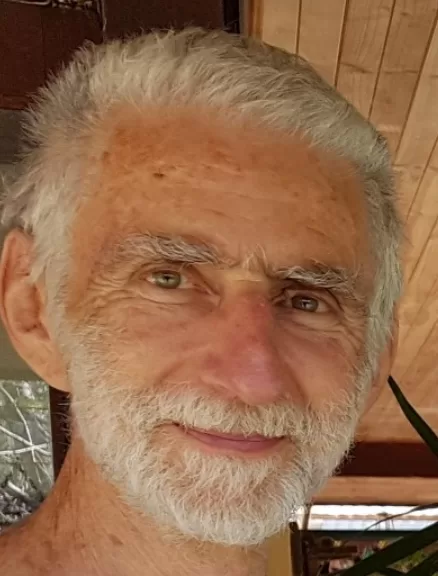
PRESENTATION TITLE - The Globally Responsible Constitution
ABSTRACT - The worsening global predicament has invoked calls for each and all to commit to globally protective responsibility (eg, by the Earth Charter, Commission for Global Governance, Interaction Council). My paper explores the transformative implications for individual integrity and world constitutional order. Immediately invoked is a paradigm shift from our highly militarized, state-centric, rights-based constitutionalism towards global responsibility-based civilization. Beyond our experience, such integrity-based future is hard to envisage. Tempered by pessimism regarding human development potential, this paper sets out nonetheless to explore the ethical implications in a logically coherent, step by step manner, starting with cosmopolitan impartiality and the categorical imperative, as the quintessential meta-principles of global responsibility. What emerges is an interconnected, coherent set of fundamental responsibility principles, offering an enduring foundation or kernel of integrity from which the constitutional norms and arrangements of future world civilisation might be co-decided and evolve.
BIO - Richard’s early architectural career segued into environmental design and futures education, later into moral and political philosophy. Completing a PhD (2001) on global responsibility and its implications for integrity and system change, he subsequently conducted small group-based, world constitutional deliberation experiments towards conceiving an online platform enabling millions to participate.
Glen Morris
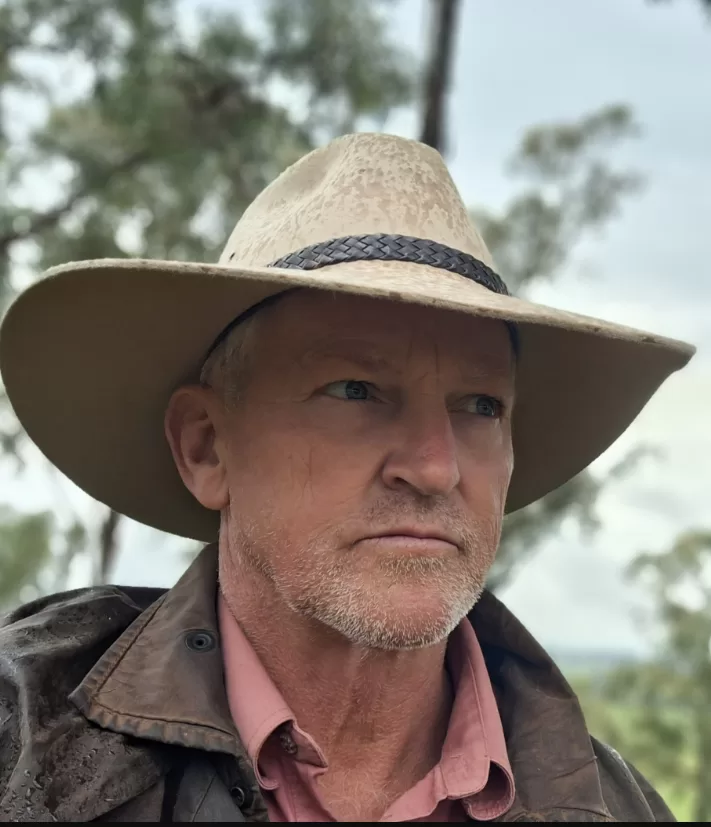
PRESENTATION TITLE - A Celestial Vision for Stewarding the Earth
ABSTRACT - As we move through the summer of 2025, I ponder over how best to communicate the critical importance of our stewardship role in caring for this stunningly beautiful planet.
How best to communicate, the huge responsibility us humans have, in managing the delicate relationship between processes occurring on the surface of the earth with processes happening in our atmosphere.
In my opinion, we adults are drastically failing in our ethical responsibilities to enhance or even maintain a liveable environment for future generations.
Additionally, we are failing by any measure of integrity to act as responsible steward's of this miracle of a blue planet we call home.
Just like our own skin that keeps our bodies, protected, moist and alive, forests act like the skin of the landscape, keeping it protected, moist and alive. No skin, no body, no moisture - no life.
BIO - Glenn Morris
Father of three sons
Holistic property manager
Researcher of land stewardship methods
Researcher of soil humus
Pioneer of carbon sequestration to combat change in Australia
Featured in several documentaries on regenerative agriculture
Outspoken advocate for action against climate change for 25 years
Award winner for sustainability
Earth steward
Dr Jane O'Sullivan
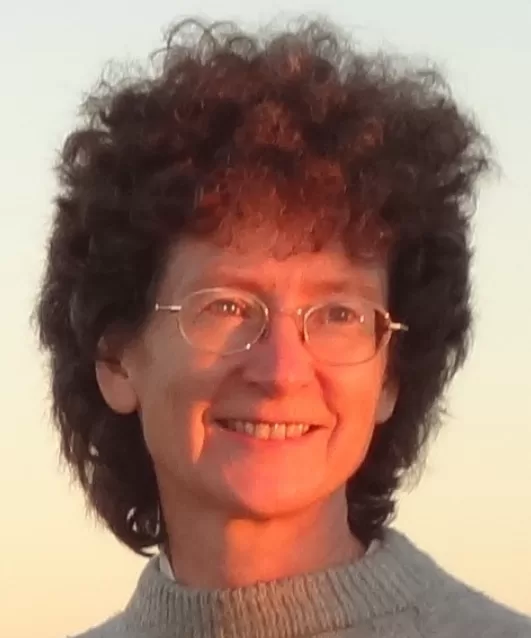
PRESENTATION TITLE - Reconciling human reproductive rights with rights of nature
ABSTRACT - The right of individuals to have children is often regarded as a fundamental an inalienable right, regardless of the number of children or the circumstances into which they are born. Yet all human rights are constrained by their impacts on the rights of others. Reproduction is fundamentally other-affecting, affecting the prospective child and its siblings but also all the members of other species who will compete for resources with those children, or suffer from the impacts of their actions and waste products. The United Nations declares that “All couples and individuals have the basic right to decide freely and responsibly the number and spacing of their children and to have the information, education and means to do so.” In this era of ecological overshoot, are we educating people adequately on what it means to decide ‘responsibly’? What social norms or harder constraints, if any, are appropriate to ensure responsible procreation?
BIO - Dr Jane O’Sullivan has an overarching interest in human ecology and planetary health. She worked on tropical semi-subsistence farming systems before focusing on the threats to security posed by population growth and the taboos and misrepresentations that prevent effective responses. Affiliations include The Overpopulation Project and Sustainable Population Australia.
Prof Yin Paradies
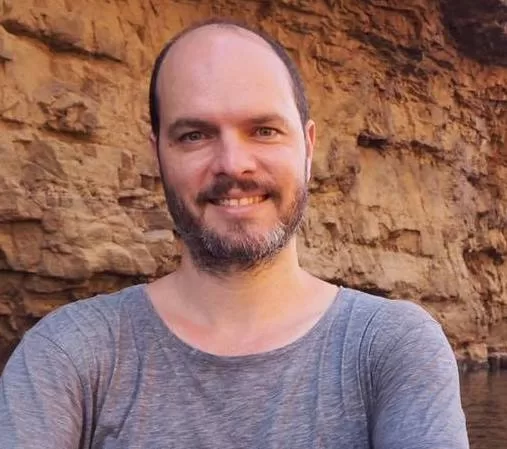
PANEL PRESENTATION TITLE - The Relationalist Ethos and Indigenous Ethics
Co-panelists - Dr Mary Graham and Prof Anne Poelina
BIO - As Chair in Race Relations, Professor Paradies conducts research on the health, social and economic effects of racism as well as anti-racism theory, policy and practice across diverse settings, including online, in workplaces, schools, universities, housing, the arts, and health. He also teaches and
undertakes research in Indigenous knowledges and decolonisation. He has authored 265 publications, including 190 peer-reviewed articles, 25 book chapters and two monographs. Prof. Paradies has delivered 309 presentations
(83 international; 209 invited presentations), including 48 guest lectures and 29 keynotes. He is an investigator on 12 current, and 58 completed, grants (12 as lead investigator, 11 ARC and 9 NHMRC grants) with a combined worth of $58
million, as well as an invited reviewer for 127 journals. Prof. Paradies has assessed grants for the Australian National Health and Medical Research Council, Australian Research Council, New Zealand Health Research Council, the
United States National Science Foundation, New Zealand Marsden Fund Council, Ontario Research Fund, United States-Israel Binational Science Foundation, Swiss National Science Foundation and the Austrian Science Fund. He has served on the editorial boards of Ethnic and Racial Studies, the Australian and New Zealand Journal of Public Health and Australian Aboriginal Studies. He currently (co-) supervises 9 PhDs and has supervised 14 PhD students to completion. As of Jan 2025, Prof. Paradies had 2,249 citations with a Google
h index of 69.
Prof Anne Poelina
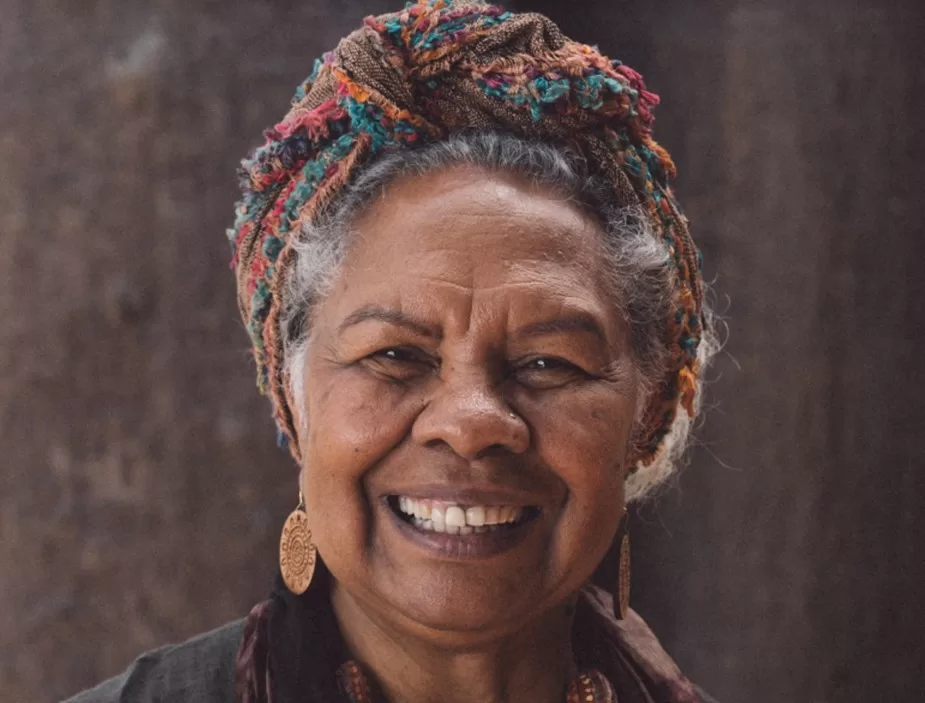
PANEL PRESENTATION TITLE - The Relationalist Ethos and Indigenous Ethics
Co-panelists - Dr Mary Graham and Prof Yin Paradies
BIO - Professor Anne Poelina is a Nyikina Warrwa woman from the Kimberley region of Western Australia. She is an active community leader, human and earth rights advocate, film maker and respected academic researcher, with a second Doctor of Philosophy (First Law) titled, ‘Martuwarra First Law Multi-Species Justice Declaration of Interdependence: Wellbeing of Land, Living Waters, and Indigenous Australian People’ (Nulungu Institute of Research, University of Notre Dame, Broome, Western Australia).
Anne, winner of the 2024 Geoethics Medal is also the Murray Darling Basin (MDB) inaugural First Nations appointment to its independent Advisory Committee on Social, Economic and Environmental Sciences (2022), and member of Institute for Water Futures, Australian National University, Canberra. Poelina was awarded the Kailisa Budevi Earth and Environment Award, International Women’s Day (2022) recognition of her global standing. Poelina is also an Ambassador for the Western Australian State Natural Rangelands Management (NRM) (2022).
Dr Natalie Ralph
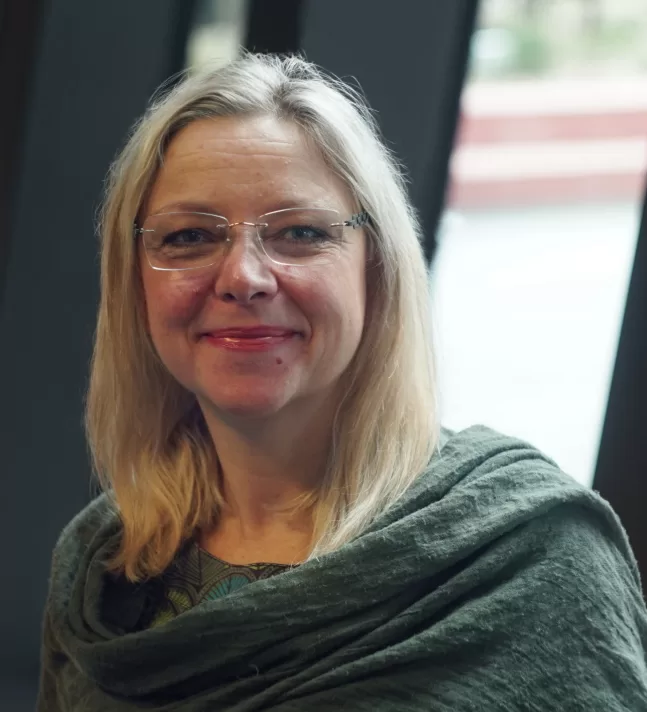
PRESENTATION TITLE - Geopolitics analysis of “critical minerals” discourses, ethics and the pluriverse in the global energy transformation
ABSTRACT - Demand for “critical minerals” (CM) for the global energy transformation is propelling significant expansion of mining and an evolving formal geopolitics (e.g. inter-state rivalry, diplomacy, friendshoring) for CM supply security. This presentation investigates associated discourses and ethical implications, particularly those of a parallel geopolitics of extraction “from below”, related to Indigenous communities’ “Right to Say No” to CM projects, and when driven by Indigenous relational ontologies. Foregrounding the pluriverse concept, research explores if, and to what extent, CM formal geopolitics reconciles a “need” for CM, with Indigenous onto-epistemological differences. A critical geopolitics methodology of discourse analysis is applied to key documents representing both the formal geopolitics around CM, and Indigenous community networks and supporting organisations. This identifies eight major themes in the geopolitical imaginaries and proposed practices of the two perspectives. These themes are discussed, along with proposed ethical-political requirements for steps towards greater recognition of the pluriverse.
BIO - Dr Natalie Ralph is a Research Fellow in Energy at University of Warwick, UK and UK Energy Research Center (UKERC). Her research addresses (critical) international energy geopolitical-economy and diplomacy issues. She has a background in the ethics, sustainability and global governance of low-carbon/renewable energy technologies, mining, and peacebuilding.
Prof Matthew Rimmer
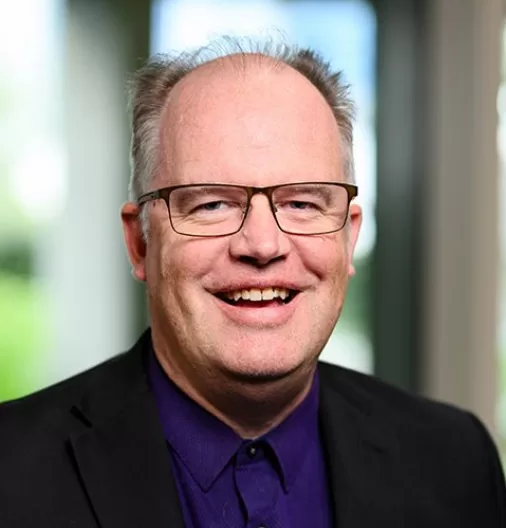
PRESENTATION TITLE - The Torres Strait Eight and the Pabai Pabai Cases: Climate Change, Cultural Rights, and Indigenous Intellectual Property
ABSTRACT - This presentation considers climate litigation by Indigenous communities against the Commonwealth Government. First, it looks at the successful international action by the Torres Strait Eight. In 2022, a UN Human Rights Committee found that Australia’s failure to protect indigenous Torres Strait Islanders against adverse impacts of climate change violated their rights to enjoy their culture and be free from arbitrary interferences with their private life, family and home.
Second, it considers domestic climate litigation by Wadhuam Paul and Wadhuam Pabai, leaders from the Gudamalulgal nation of the Torres Strait Islands. The case considers whether the Australian government owes a duty of care to take reasonable steps to protect Torres Strait Islanders, their traditional way of life and marine environment from climate change impacts. The case of Pabai Pabai and Guy Paul Kabai v Commonwealth of Australia has been heard by the Federal Court of Australia. but the outcome is pending.
BIO - Dr Matthew Rimmer is a Professor in Intellectual Property and Innovation Law at the Faculty of Business and Law, at QUT.
Ashley Rooney

PRESENTATION TITLE - Climate action through corporate disclosures: exploring Australia’s new mandatory climate-related financial disclosures regime
ABSTRACT - While some companies have voluntarily sought to address their environmental and social impacts, legal compliance remains one of the key mechanisms to shift corporate behaviour. The introduction of Australia’s new mandatory climate-related financial disclosures regime is one of the country’s most significant pieces of ‘environmental’ law to date, despite the fact the regime is taking effect via amendments to Australia’s Corporations Act 2001 (Cth). The new regime requires captured companies to disclose information about their climate-related risks and opportunities in a ‘sustainability report’ as part of their annual financial reporting. This session will explain Australia’s new mandatory climate-related financial disclosures regime (including its possible expansion to broader sustainability-related disclosures), discuss its rationale, and consider its likely implications, including whether disclosures are likely to transform into meaningful climate action.
BIO - Ash is a lawyer specialising in environment, ESG and climate change law. Ash regularly advises clients on the opportunities, risks and regulatory requirements relating to environmental offsets and markets, particularly carbon and biodiversity markets, and in relation to climate reporting (including under the National Greenhouse and Energy Reporting Scheme and Australia’s new mandatory climate-related financial disclosures regime). Her practice also includes assisting clients to transition to net-zero and reach their ESG goals, as well as contamination issues and environmental approvals.
Liza Rolim Baggio
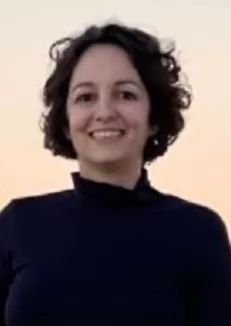
PRESENTATION TITLE - Policies and legislation for Resilience-Based Management – a case study of the Great Barrier Reef
ABSTRACT - Resilience-Based Management (RBM) is a climate change adaptation measure to combat global reef decline by increasing ecosystem resilience. My research focused on the key feature of RBM, which is threat mitigation, the most feasible and cost-effective action to increase resilience. Considering that policy and legislation can strongly influence threat reduction – controlling activities, inducing behaviours, and offering guidance - my research aimed to understand what characteristics policies and legislative instruments might need to support RBM. Using the Great Barrier Reef as a case study and focusing on instruments from state and federal governments that address activities impacting the GBR, I developed an RBM Framework. This framework includes relevant elements that influence impact reduction and offers a holistic view of the context in which policies and legislation operate. Further I applied the RBM Framework to the GBR, which resulted in five recommendations for policies and legislation to support RBM.
BIO - Liza Rolim Baggio is an environmental lawyer and consultant and has recently concluded her Phd in Environmental Policy and Legislation, at the University of Queensland. Liza is passionate about nature and her main interest is to understand how policies and legislation can support sustainable development.
Ricardo Rozzi
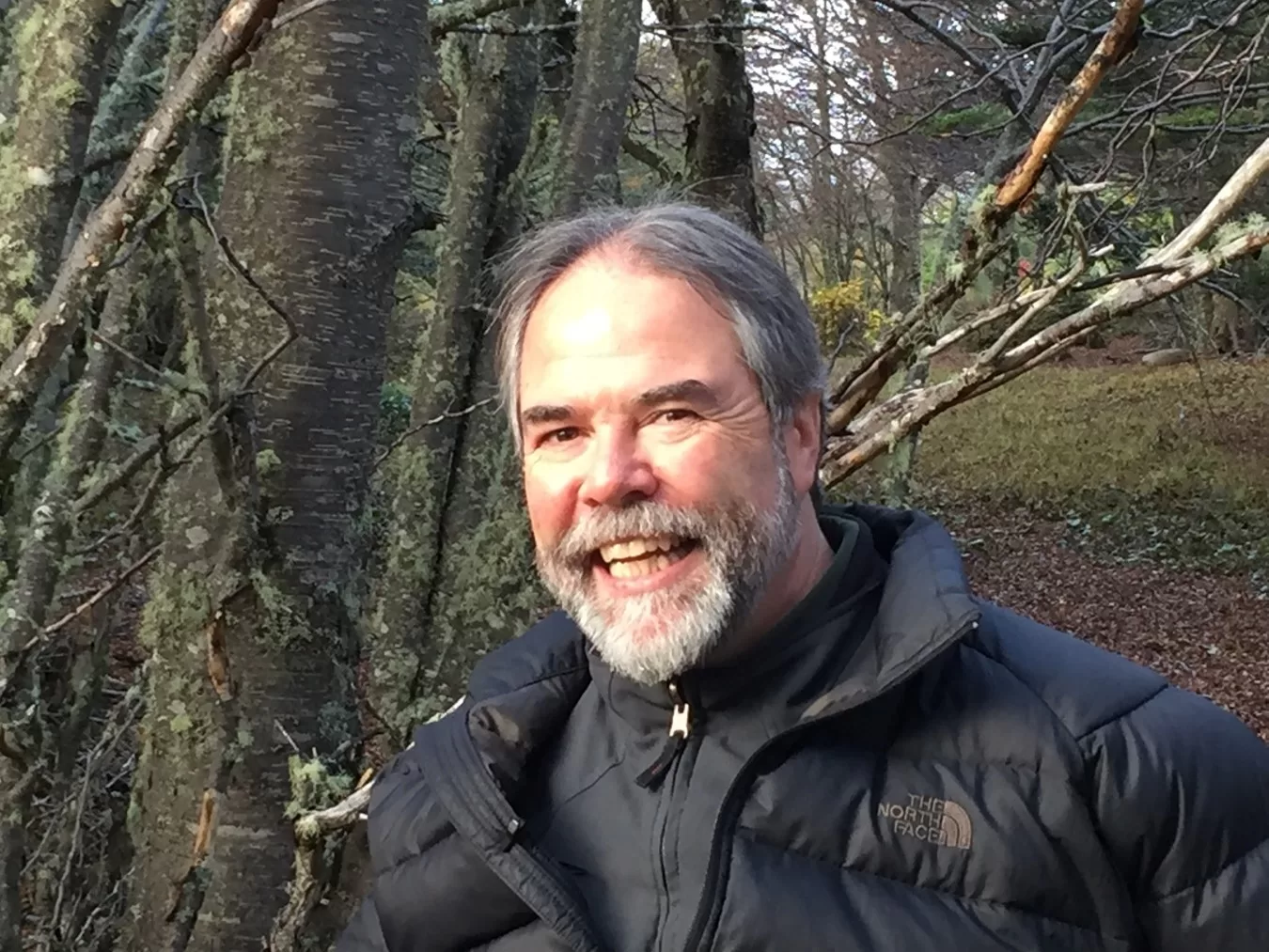
PRESENTATION TITLE - Anethics of co-inhabitation for biocultural conservation
BIO - Ricardo Rozzi, Chilean ecologist, and philosopher is a full professor at the University of North Texas (USA) and the University of Magallanes (Chile). He is Director of the Cape Horn International Center (CHIC), Puerto Williams, Chile and Vice-President of the Center for Environmental Philosophy (CEP), Denton, Texas, USA. He has led the creation in Chile of the Omora Ethnobotanical Park, the Reserve of the Cape Horn Biosphere, and the Diego Ramírez Islands-Paso Drake Marine Park. His research combines ecology and philosophy and has coined the terms biocultural conservation, biocultural homogenization and biocultural ethics focused on the links between human well-being and the conservation of biological and cultural diversity. Integrating theory and practice, he has created new educational methodologies such as Field Environmental Philosophy and innovative practices such as Ecotourism with a Hand Lens.
He has received various awards, including the National Award for Scientific and Technological Dissemination (EXPLORA-CONICYT, Chile, 2004), the Eugene P. Odum Award for Excellence in Education in Ecology (Ecological Society of America - ESA, USA, 2019), and the Luis Oyarzún Award (Universidad Austral de Chile, 2022).
Dr Angie Sassano

PRESENTATION TITLE - Pollinating Ethics in an AI Agricultural Future
ABSTRACT - The rapid decline in pollinator species - due to climate change, monocultures, and chemically intensive agricultural practices - presents a range of ecological and social risks to agriculture. In response, agri-tech firms are investing in the development of robotic pollinators which utilise data-driven and algorithmic models to promote the precise use of agricultural inputs and artificial pollination to ensure food production. While proponents view the development of robot pollinators as a necessary step in achieving ecologically sound agriculture, this paper critiques this technological turn. By adopting a multispecies framework of justice and nonhuman ethics, I examine how robotic pollinators intensify the rapid decline of pollinating species whilst normalising ecologically degrading human-nature relationships. I argue that the reliance on AI and robotics risks devaluing plant and pollinator species and opens new ecological dangers, whilst deliberating on alternative approaches to agricultural futures that take seriously an ethic of nonhuman life.
BIO - Angie Sassano is an early-career interdisciplinary researcher with an interest in food studies, environmental ethics, and philosophy. Her work focuses particularly on the intersection of race and colonisation in agriculture, and the social and ethical impacts of new and emerging technologies.
Helen Schwencke

PRESENTATION TITLE - Everyday Ethics: Gardening with nature for biodiversity
ABSTRACT - Respecting “More than human life” refers to biodiversity and its conservation.
What every-day ethical decisions can we make, and actions we can take, about this?
The serious losses of species can be addressed, locally, individually and communally, through everyday ethical decisions. Decolonising our gardening practices, to include the vast majority of creatures that are “unseen life”, is one such decision and practice.
Nineteen out of every twenty animals don’t have backbones and many form the basis of most food webs. These are the creatures that keep ecosystems healthy, supporting human life.
How? By growing local native plants, present pre-settlement or nearby, in our gardens and local spaces, each of us can make a local difference to enhancing biodiversity, contributing to local cooling, food security, mental health and well-being and making a worthwhile contribution to growing our understanding of the biodiversity crisis while overhauling our view of Life on Earth.
BIO - Introducing people to different ‘meaning of life’ through connecting people with “unseen” nature and growing food for enhancing local biodiversity is Helen Schwencke’s passion. She led Woodfordia’s Butterfly Project (2003-2024). Helen, an ecologist, is co-author of "Create More Butterflies" and "Inviting Nature to Dinner", is a speaker, and nature guide.
Dr Chand Sirimanne

PRESENTATION TITLE - Dangerous Delusions of Invulnerability
ABSTRACT - The greatest and most destructive delusion that we have as a species is seeing ourselves superior to and disconnected from nature. In Buddhist psychology greed, hatred and delusion are the three fundamental toxins of the mind responsible for all ill. Enamoured with ourselves as the top predator and all-conquering species, we are on the road to self-destruction through ruining the only home we have. This hubris as a species is the topmost layer suspended over the socio-cultural, religious, ethnic and familial layers that construct the individual ego.
The concept of non-self, the lack of a concrete and permanent selfhood, is at the heart of Buddhism. The individual ego delusion leads to all other delusions seeping through to society and to the world, blinding us to the interdependence of all life forms, giving rise to limitless greed. hatred of the Other, and monumental indifference even to possible planetary annihilation.
BIO - I currently work as a researcher/writer focusing on Buddhist meditation, psychology, ethics and the way Buddhism is evolving in the West. My specific interest is in enhancing the therapeutic potential of secular mindfulness through incorporating other meditative practices and an ethical aspect, giving rise to more inclusive and compassionate attitudes.
Andrew Skeoch
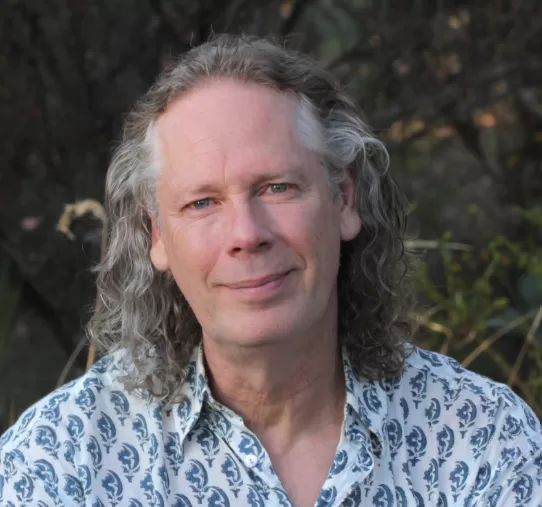
PRESENTATION TITLE - Deep Listening to Nature
ABSTRACT - What can we learn from listening to the communications audible in natural systems?
When we listen to nature, we hear animals relating. Many of these vocalisations tell us of the interactions of individual creatures. However the patterns and networks of animal communication speak of how natural systems have evolved to ensure sustainability.
What can we learn from this to apply in our human world? How is co-operation optimised for the most advantage? How are the costs of direct competition minimised? How do living systems avoid runaway positive feedback loops that can compromise homeostasis? What does listening tell us about nature's capacities for regeneration and renewal?
Drawing on 30 years of field sound recording around the world, Andrew explores these questions in a relatable and entertaining way, presenting both unexpected and thought provoking conclusions.
BIO - Andrew Skeoch is a naturalist, sound recordist, environmental thinker, educator and author of ‘Deep Listening to Nature’.
Prof Robert Sparrow

PRESENTATION TITLE - Caring for Country… with Robots?
Second Author - Dr. Angie Sassano
ABSTRACT - Agricultural robots and artificial intelligence (AI) are increasingly promoted for their environmental virtues. In Australia, the idea that agriculture needs to be less environmentally destructive and attend to ongoing harms is increasingly expressed in terms of 'caring for Country'. Although this draws on Indigenous ideas of kinship, it is being adopted by settler agriculturalists seeking to be more environmentally attentive and sensitive to Indigenous justice issues. In this paper, we ask whether - and if so, how - robots and AI can contribute to caring for Country. We examine issues that those who seek to be more sensitive to relationships with the environment and Indigenous justice must consider in the context of AI and robots. We argue that while not without promise in some respects, robots and AI seem likely to exacerbate settler colonial logics of agriculture in ways that call into question their capacity to care for Country.
BIO - Lead Author: Prof. Robert Sparrow
Robert Sparrow is Professor of Philisophy at Monash University with extensive research experience in political philosophy and applied ethics, environmental ethics, and the ethics of science and technology.
BIO - Second Author: Dr. Angie Sassano
Angie Sassano is an early career interdisciplinary researcher at Monash University with research interests in food studies, environmental ethics, and philosophy. Her work examines the relations of race and coloniality in agriculture, and ethics of new and emerging technologies.
Prof Katie Steele
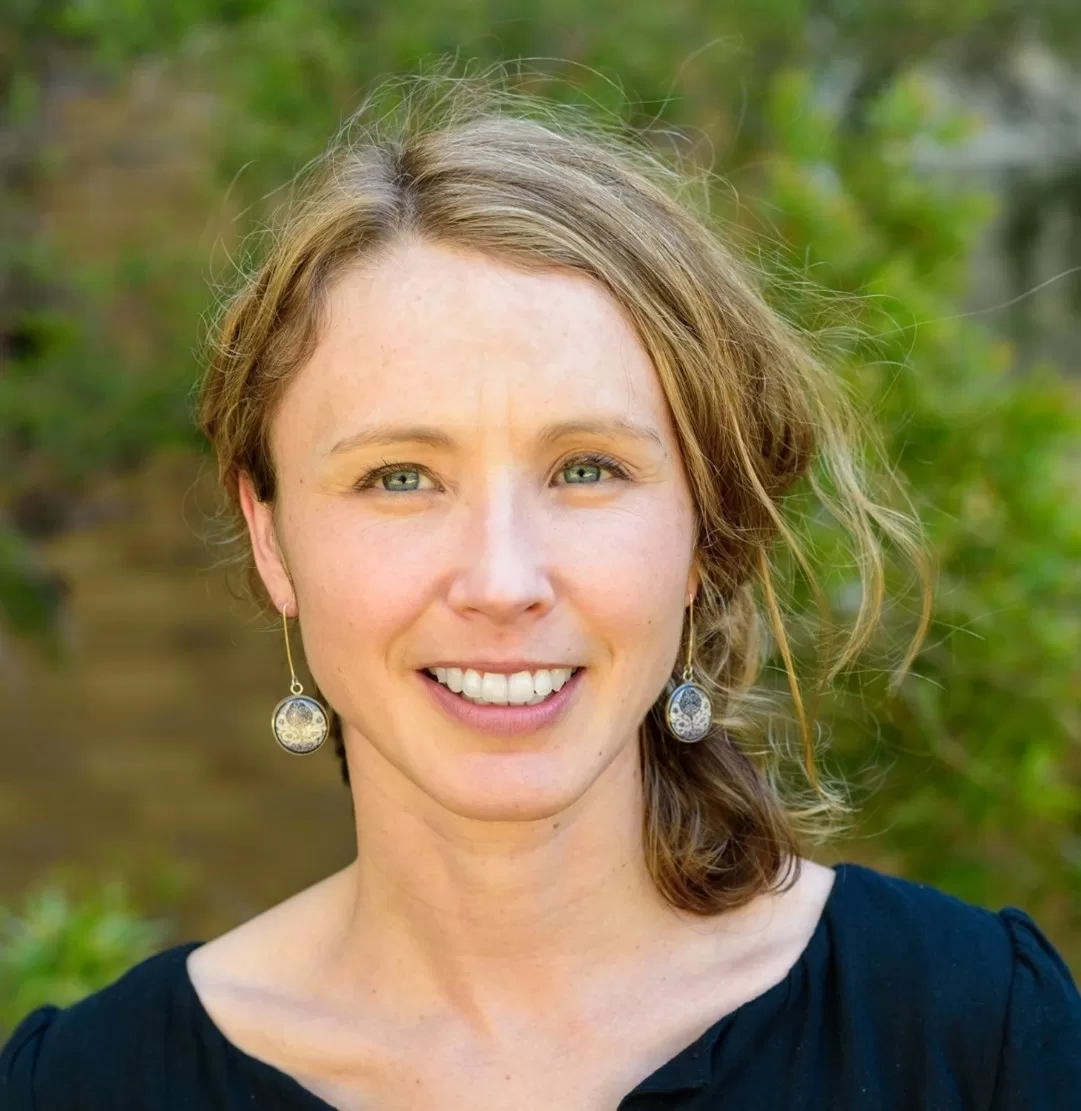
PRESENTATION TITLE - Sustainability for a Broken World
ABSTRACT - In this talk I revisit the foundations of intergenerational justice: what the current generation, at base, owes to future generations. The Principle of Sustainability, as articulated in the 1987 Brundtland Report, offers at least a guardrail: in meeting the needs of the present we should not ‘compromise the ability of future generations to meet their needs’. This has been refined in various ways, but most versions of Sustainability take uninterrupted progress in human and environmental wellbeing (or at least lack or regress) to be important. However, what if such progress (or lack of regress) were not possible or desirable given the socio/economic/environmental circumstances? It is important to consider the full range of possible circumstances, including those of a broken-down world. The reason is not to be alarmist or to embrace pessimism, but rather to get a clearer picture of what are our ethically basic and fully general responsibilities to future generations.
BIO - Katie Steele FAHA is a Professor of Philosophy in the Research School of Social Sciences at the Australian National University. She arrived at the ANU in 2016, having spent eight years in the Department of Philosophy, Logic and Scientific Method at the London School of Economics. Her research spans the different aspects of rational or wise decision-making, both for individuals and collectives, including the representation and management of uncertainty and notions of individual and social welfare. Her current project is about how we should best understand the popular concepts of ‘precaution’ and ‘sustainability’ in the context of public decision making and priority setting. Katie has been a Principal Investigator on a number of grant projects, most recently the Climate Ethics and Future Generations project hosted at the Institute for Futures Studies in Stockholm. In 2021 she received an ANU Vice Chancellor’s Award for Research Excellence. In 2023 she delivered the Parfit Memorial Lecture at the University of Oxford. She is currently an Editor of the journal Economics & Philosophy.
Prof Wendy Steele
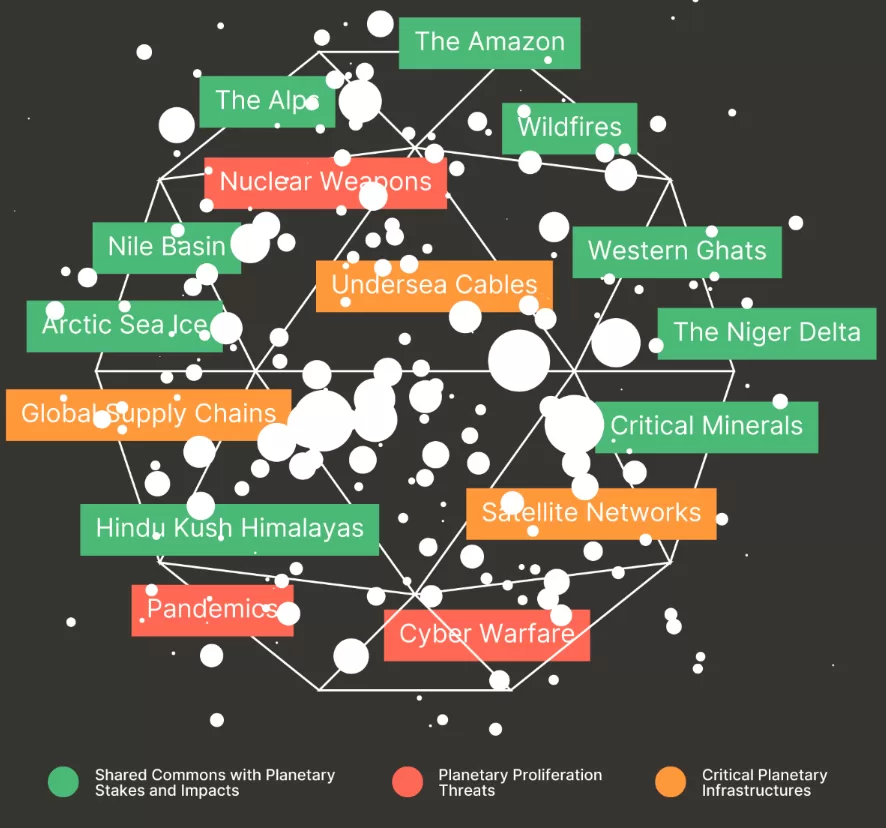
PRESENTATION TITLE - Panel Discussion "Inspiring Ethical Futures" (Wed 30th April @ 6pm, Southbank-refer to Conference Program for further details)
BIO - Wendy Steele is a Professor of Sustainability and Urban Governance and Chair of Future Earth Australia (FEA) whose research sits at the nexus of urban studies, social sciences and environmental humanities. She an award-winning researcher, writer, activist and educator who leads research and practice focused on the nature of wild cities in climate change. Her books include 'Planning Wild Cities: Human-nature relationships in the urban age' (Routledge 2020), 'Quiet Activism: Climate action at the local scale' (Palgrave 2021), ‘Hot Cities: A Transdisciplinary Agenda’ (Edward Elgar 2023) and 'The Routledge Handbook of Grassroots Climate Activism’ (2024). Wendy is a founding member of the Planetary Civics Inquiry (PCI) working in collaboration with others to support and promote regenerative futures.
Howard Tankey

PRESENTATION TITLE - Caring for Country - A new economic system
ABSTRACT - It covers new ways of being on this planet with radically new economic, social and educational arrangements. They are based on many ideas embedded in Indigenous cultures.
The central theme is for a new 'economic system':
Main Elements
1. Know what ‘goods and services’ are required on a weekly, monthly, yearly time scale (Similar to Western economies)
2. Everyone just takes what they need, with every decision applying the needs of others and the environment into their decisions.
3. Carefully and wisely choose the best people for the necessary tasks.
4. All ‘work’ carried out co-operatively and in the best interests of the community ie. the greater good.
5. Everyone rewarded / paid equally.
6. Every action is carefully assessed for its impact on the natural world.
BIO - I spent 12 years as a research chemist with ICIANZ. Two of these years on secondment in the UK. After an interesting year exploring the possibilities of becoming a social worker for ICIANZ, I became a teacher. I tried to vary my experiences in teaching as much as possible and spent 4 years as a Pupil Welfare Co-Ordinator and 1 year on a teacher exchange program. For the last 25 years I have been involved in the reconciliation movement.
Felicity Tepper

PRESENTATION TITLE - An Introduction to Environmental Restorative Justice
ABSTRACT - We’d like to introduce environmental restorative justice (ERJ), a transformative approach to addressing environmental harm and degradation emphasising relationality, care, community engagement between humans and between humans and the more-than-human world.
Co-Presenter - Dr Mark Hamilton
BIO - A socio-ecological-legal researcher at RegNet Australian National University, Felicity is qualified and experienced in environmental law and policy, disaster management & humanities. She enjoys synthesising cross-disciplinary ideas to address environmental challenges. Her current interests include multispecies justice, human-wildlife coexistence, civic engagement, resilience and environmental restorative justice.
https://researchportalplus.anu.edu.au/en/persons/felicity-tepper
Dr David Tutty

PRESENTATION TITLE - Struggling to be ethical: Whitefella collective trauma and struggles to see beyond self-interest
ABSTRACT - Australian Whitefellas are shaped by centuries of woundedness that has left a scar – a collective trauma – that needs to be faced. This trauma limits Whitefellas’ ability to see beyond their own self-interests and to live with a healthy respect for others and for the non-human world. Experiences of the Enlightenment’s quest for knowledge and control; of the empire’s profit-seeking exploitation; of the self-legitimating master narrative of white superiority; and of punitive dominant theologies have contributed to this Whitefella collective trauma. Alongside this are experiences of devastating violence, invasions, massacres, World Wars and environmental exploitation. These centuries of woundedness have caused Whitefellas to be disconnected from land, community, history and identity, from themselves, their emotions and spirit, from compassion and empathy, from historical injustices and from the need for respectful relationships with the non-human world. This paper seeks to name Whitefella struggles and their struggles with ethics.
BIO - Dr David Tutty is the Executive Officer of the Toowoomba Catholic Social Justice Commission. This work includes advocacy and education for justice focusing on issues that are raised by First Nations peoples, refugees and asylum seekers and care of our common home – planet earth. Originally from Aotearoa New Zealand, he has also lived for many years in South Africa and Australia. His doctorate is from the University of South Africa and is in a branch of theology called missiology.
Dr Michael Vincent
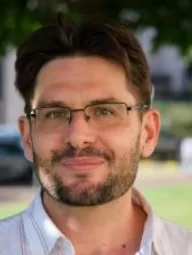
PRESENTATION TITLE - An Environmental Ethic as Social Strategy
ABSTRACT - Aldo Leopold in The Land Ethic lamented that “The farmer who clears the woods off a 75 per cent slope, turns his cows into the clearing, and dumps its rainfall, rocks, and soil into the community creek, is still (if otherwise decent) a respected member of society.” Later writers, including some famous Australians, would go on to suggest that this is because of a belief in ‘facts’ of human supremacy and the ethical importance of freedom. I want to suggest an alternate account, in which tolerance of bad behaviour is not best understood as driven by beliefs about the facts, but rather should be understood as a strategy for preserving social harmony. Then, talking in terms of strategies for living together, we can ask what progress in an environmental ethic might look like.
BIO - [Michael is/I am] an academic at the University of Queensland, teaching philosophy and professional ethics. [I am/ he is] interested in public justification, pluralistic and naturalistic accounts of values, divisions of authority and responsibility, and social responses to emerging technologies.
Susan Wanmer

PRESENTATION TITLE - Beyond Stated Values: Ethical Reputation, Assumed Knowledge, and the Business of Trust
ABSTRACT - Businesses and leaders increasingly seek ethical reputations yet many struggle to align their values with their systems. Every action, from governance to customer engagement, is ultimately shaped by a person’s decision. An internally-focused perspective can create unintended barriers and raise ethical challenges in real-world interactions.
BIO - Susan Wanmer is a Business Educator and Strategic Advisor, focusing on ethical governance, sustainable business models, and regenerative leadership. Consulting across sectors, she is also Industry Advisor for Destination Byron (Regenerative Tourism) and Board Director for NENA (New Economy Network Australia). Susan is Founder and Curriculum Developer of Byron Bay Business College.
A-Prof Louise Whitaker
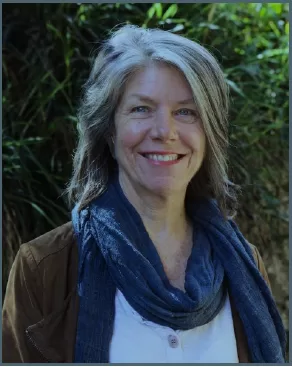
PRESENTATION TITLE - Conversing with River: Nurturing multispecies relationships through cooperative inquiry
ABSTRACT - Human actions are changing the nature of life on our planet. Developing participatory ways of engaging with the more-than-human world is vital to restoring multispecies relationships and resituating humans within a subjective community of life. This paper will draw on experiences shared during the recent cycle of The Living Waters project, an ongoing cooperative inquiry established in 2021 by participatory action researcher Peter Reason and other colleagues. Through phases of action and reflection, participants developed a deep connection with their body of water, finding creative ways to communicate and engage with River as a sentient being. Sharing these encounters with the inquiry group and witnessing each other’s' accounts fostered a profound sense of kinship within the group, deepening our response-ability toward our rivers and the wider Earth community. Cooperative inquiry as a participatory model opens up new possibilities for engaging with the more-than human world and nurturing ethical multispecies relationships.
BIO - ouise Whitaker is Associate Professor, Social work at Southern Cross University. Her research examines the social inclusion of women from refugee backgrounds, mental health social work and eco-social work.
Dr Graham Wood
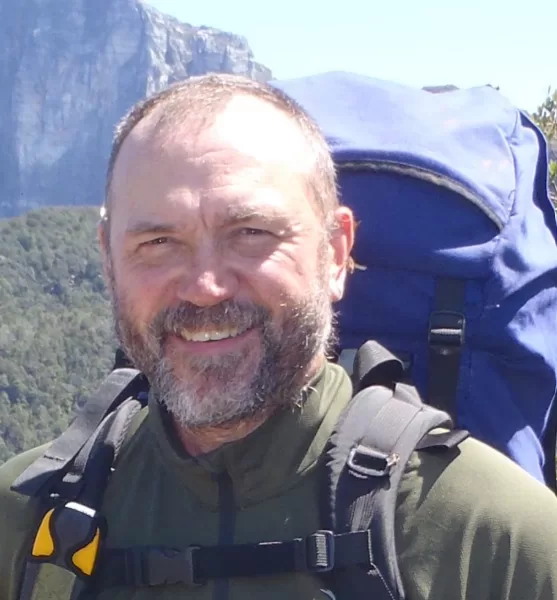
PRESENTATION TITLE - Asking and answering 20 open questions to facilitate engagement with sustainability.
ABSTRACT - This activity can address any topic at any scale and is undertaken with no expectation about what answers will emerge. The questions are as follows: What is being sustained? What is not being sustained? Why is it being sustained? Why is it not being sustained? Who/what is doing the sustaining? Who/what is not doing the sustaining? For whom/what is it being sustained? For whom/what is it not being sustained? How is it being sustained? How is it not being sustained? What ought to be sustained? What ought not to be sustained? Why ought it to be sustained? Why ought it not to be sustained? Who/what ought to be doing the sustaining? Who/what ought not to be doing the sustaining? For whom/what ought it to be sustained? For whom/what ought it not to be sustained? How ought it to be sustained? How ought it not to be sustained?
BIO - Dr Graham Wood is a philosopher in the University of Tasmania School of Humanities located in Launceston. His areas of research and teaching include Sustainability Studies, Environmental Philosophy, Moral Psychology, and Cognitive Science of Religion. Graham's research concerns the relationship between human values and a scientific understanding of the human condition. He examines this relationship within four realms: sustainability studies, environmental philosophy, moral psychology, and cognitive science of religion. In his research environmental, social, moral, and religious values are examined using insights from philosophy of mind, cognitive science, and evolutionary psychology.
Gordon Young
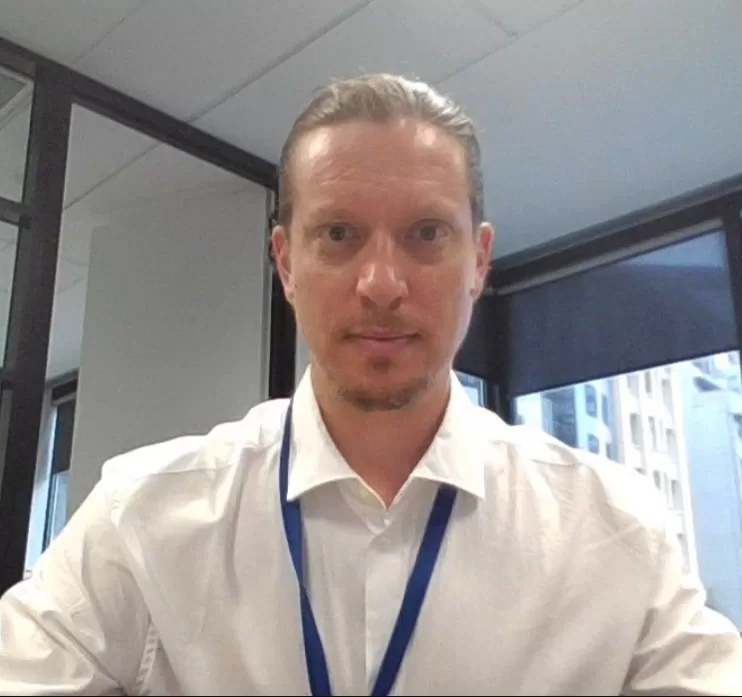
PRESENTATION TITLE - Police AI application: tactical versus strategic ethics
ABSTRACT - Police forces worldwide are currently considering Artificial Intelligence applications to improve their capacity to enforce the law and promote safety. Within the pragmatic, operational culture of Victoria Police, this is understood as an unambiguous good, provided the objectives and functions of the application are properly designed. What is not - and cannot - be considered, is whether such technological advancement of policing operations is justifiable on a strategic level. In this presentation I will describe the barriers I have identified to strategic ethical thinking within the context of the Victoria Police AI Ethics Committee, implications for broader governance issues, and potential paths forwards.
BIO - Gordon Young is a professional ethicist and Principal of Ethilogical Consulting, specialising in power dynamics. He has recently concluded a three year role as ethicist within Victoria Police, which involved a full review of the ethical elements of all training programs, a suitability analysis of the recruit training program, and a full qualitative analysis of the operational culture of the organisation, systemic drivers, and opportunities for improvement. He was a founding member of the Victoria Police AI Ethics Committee and author of its ethical review procedure.
















